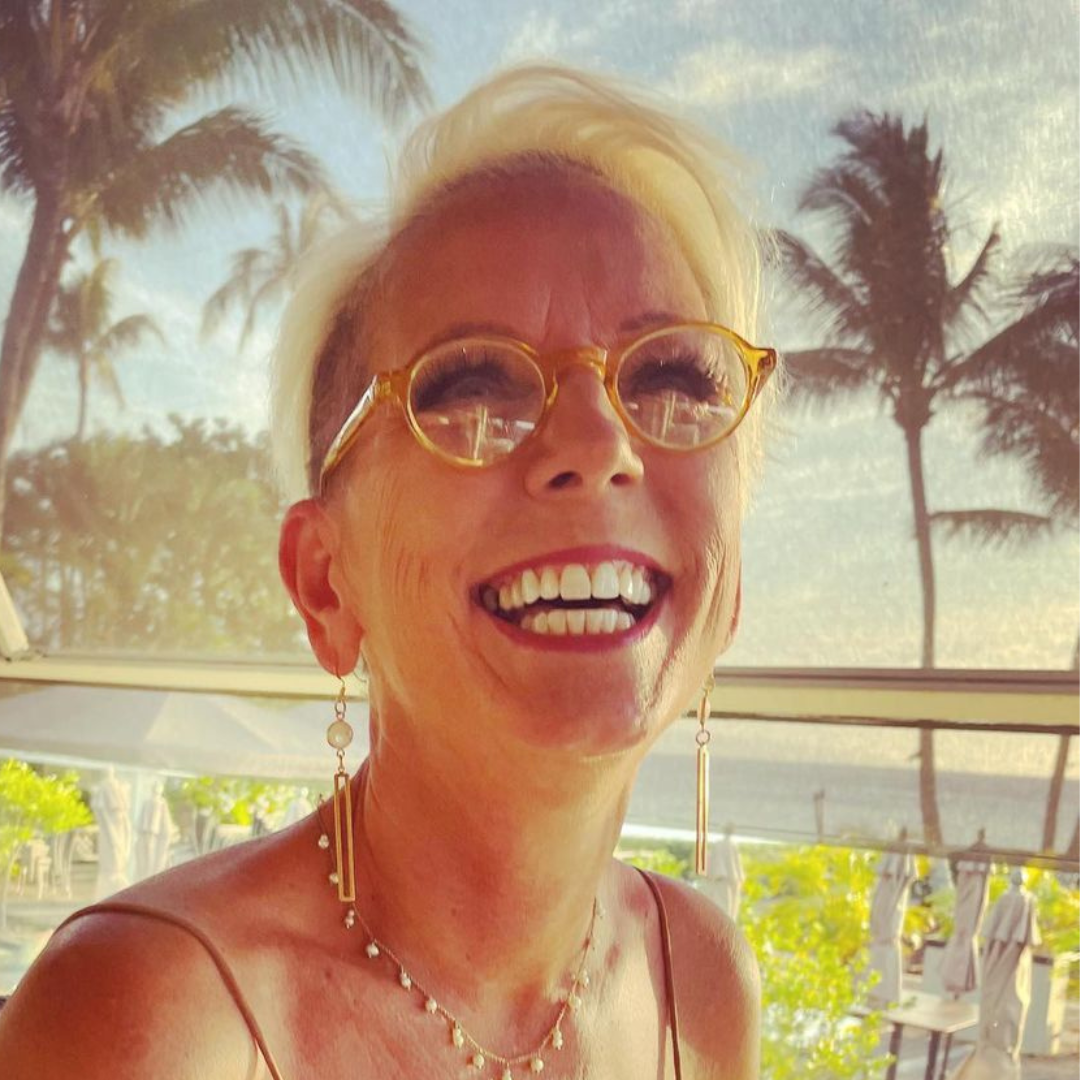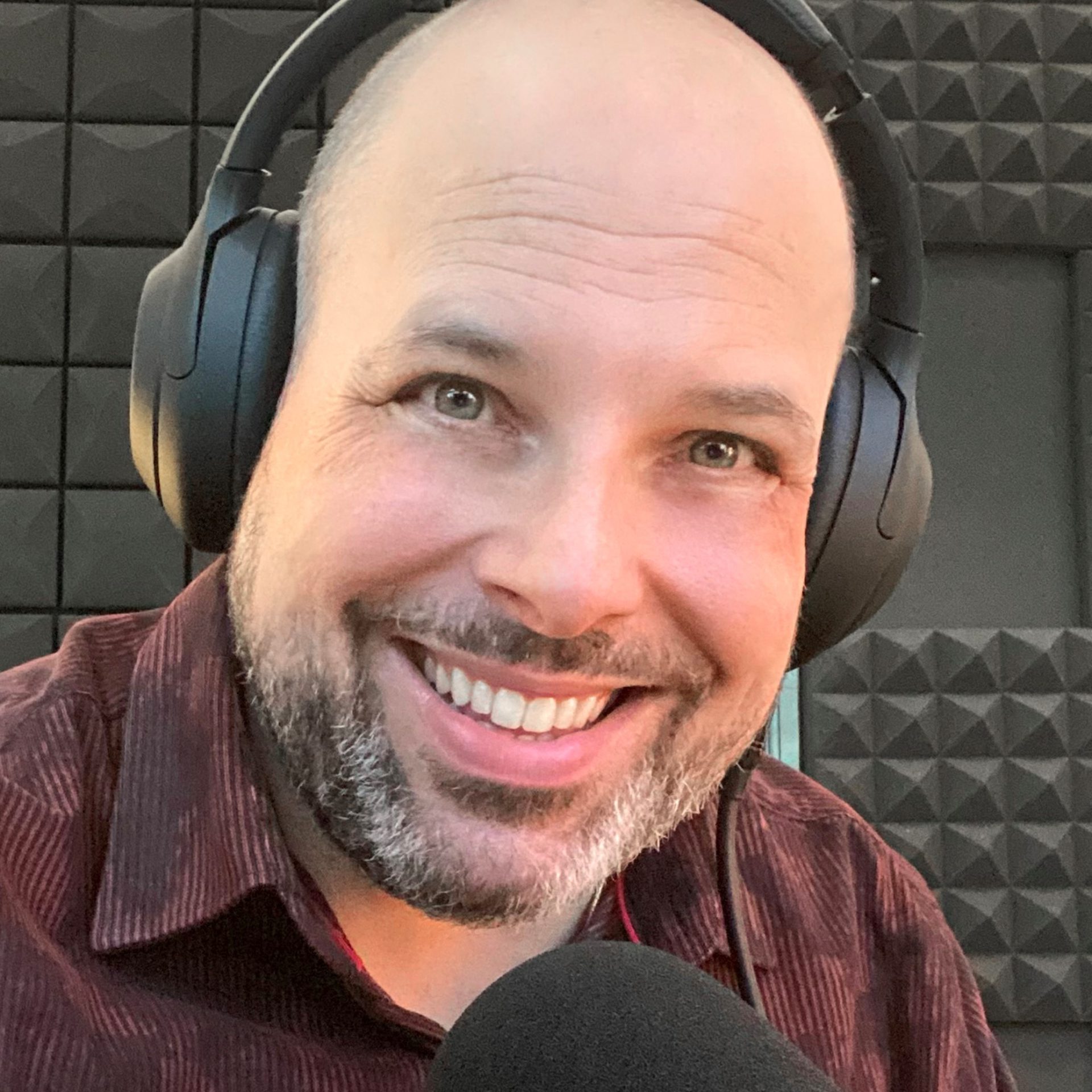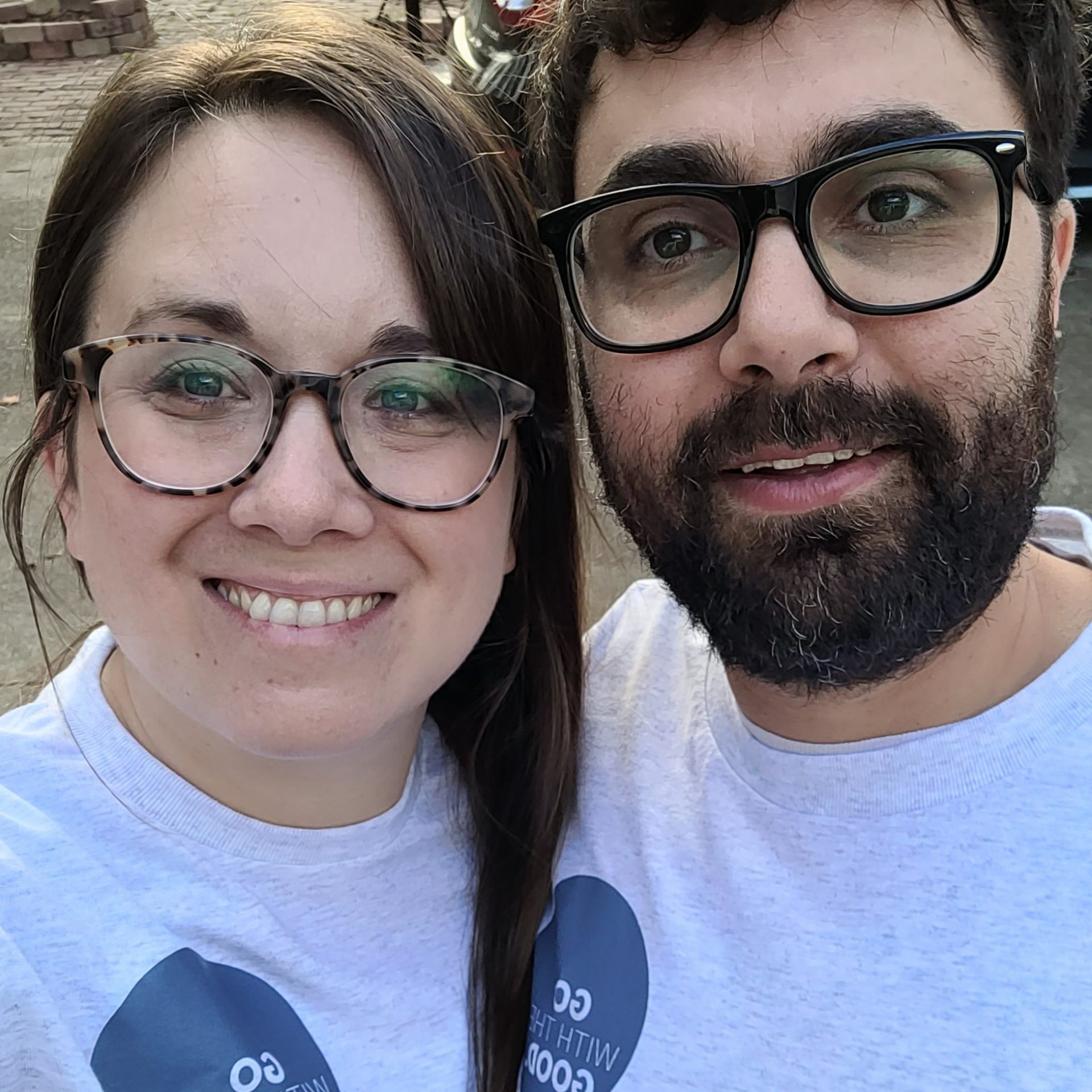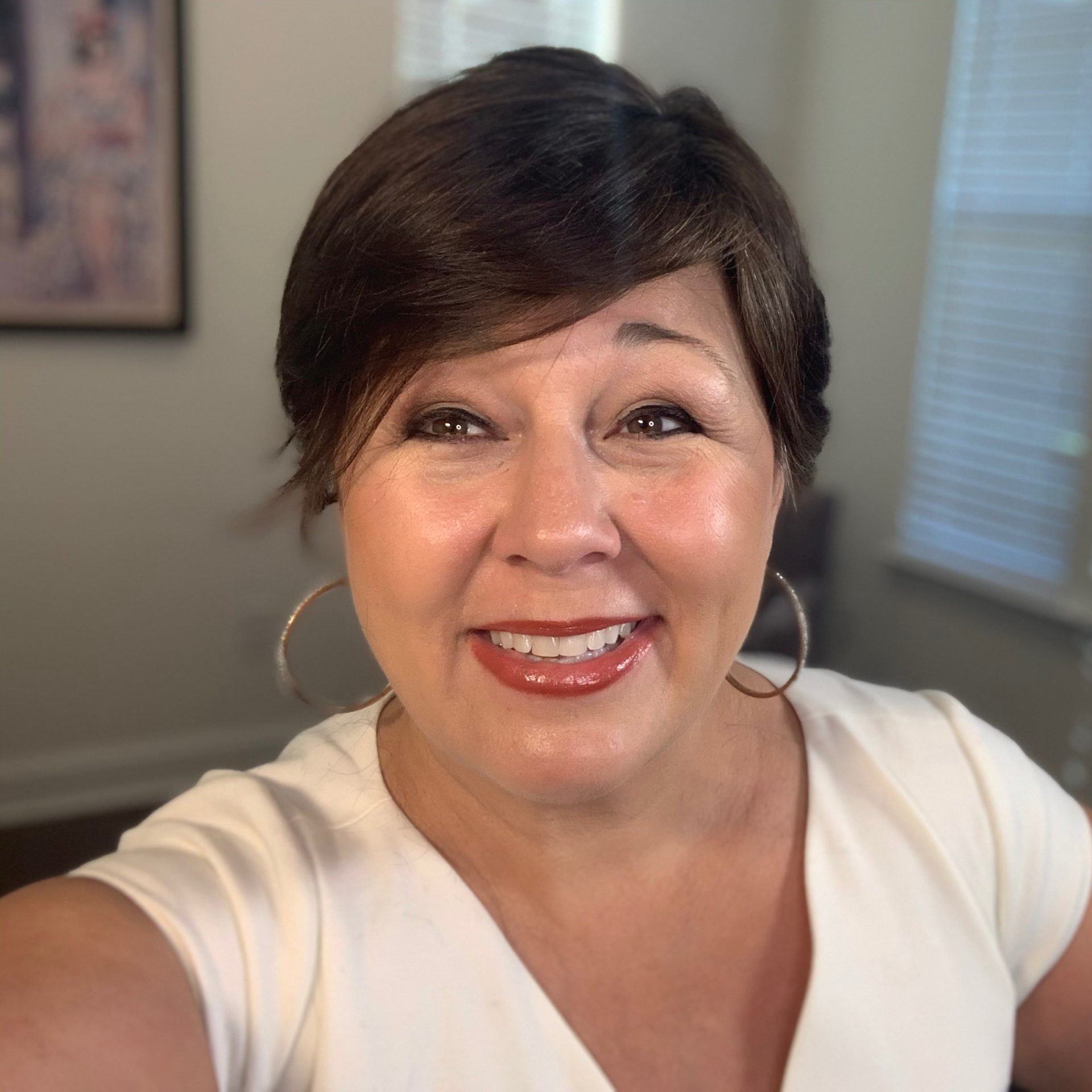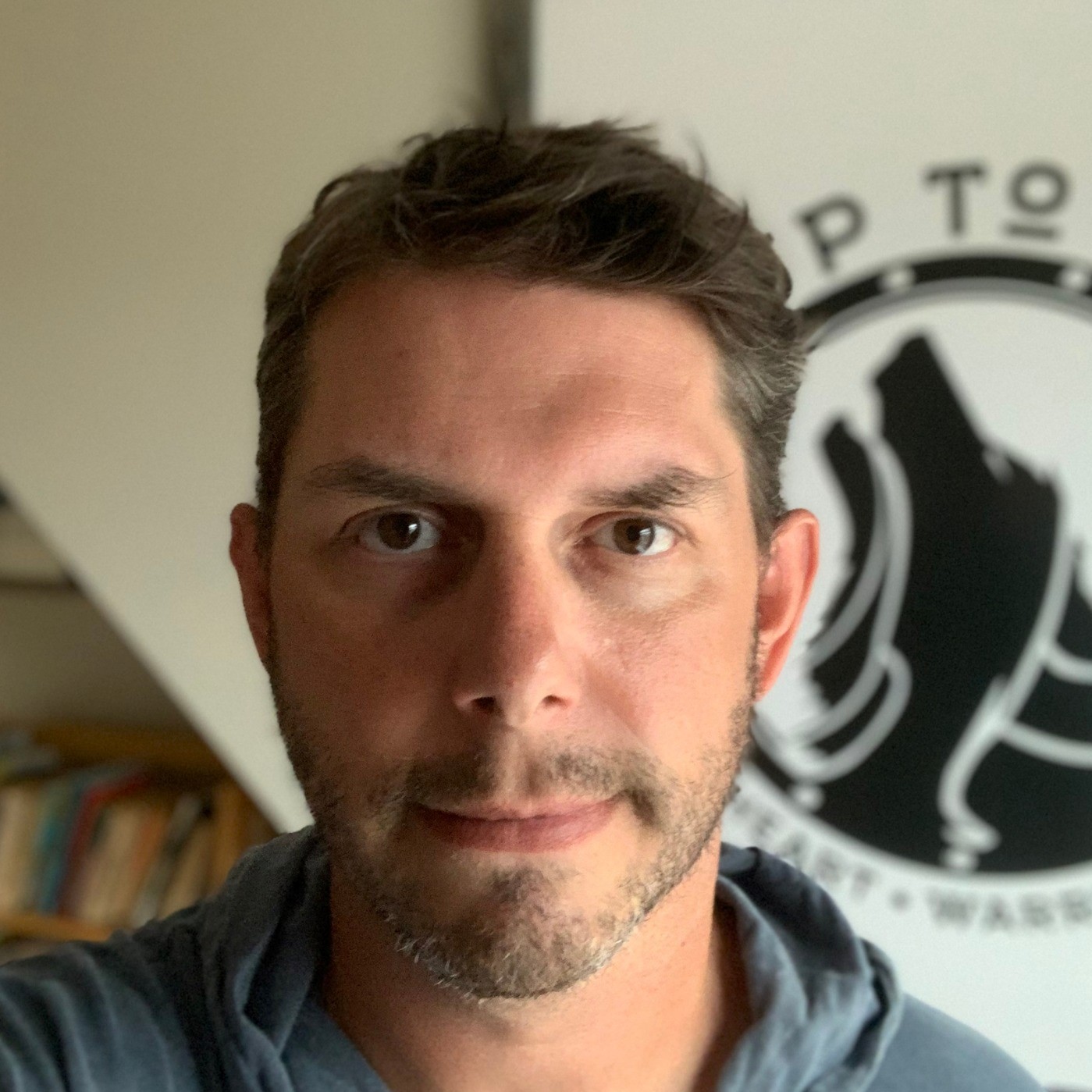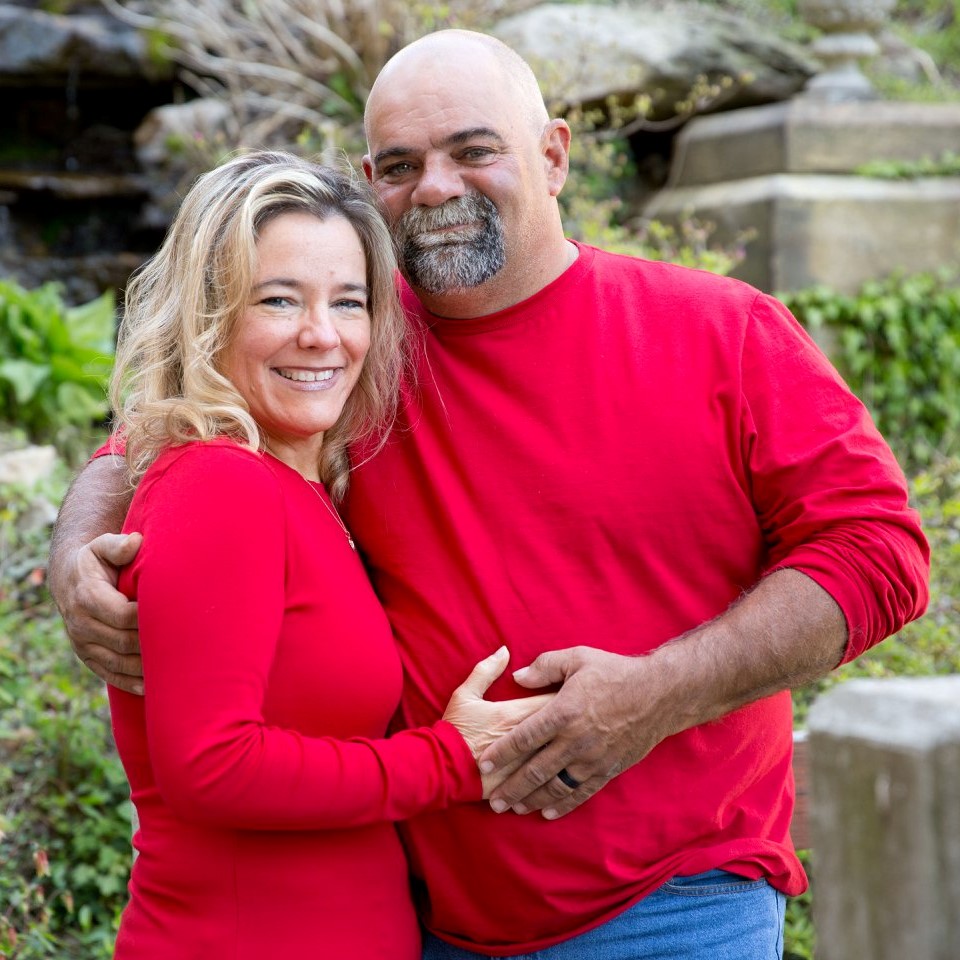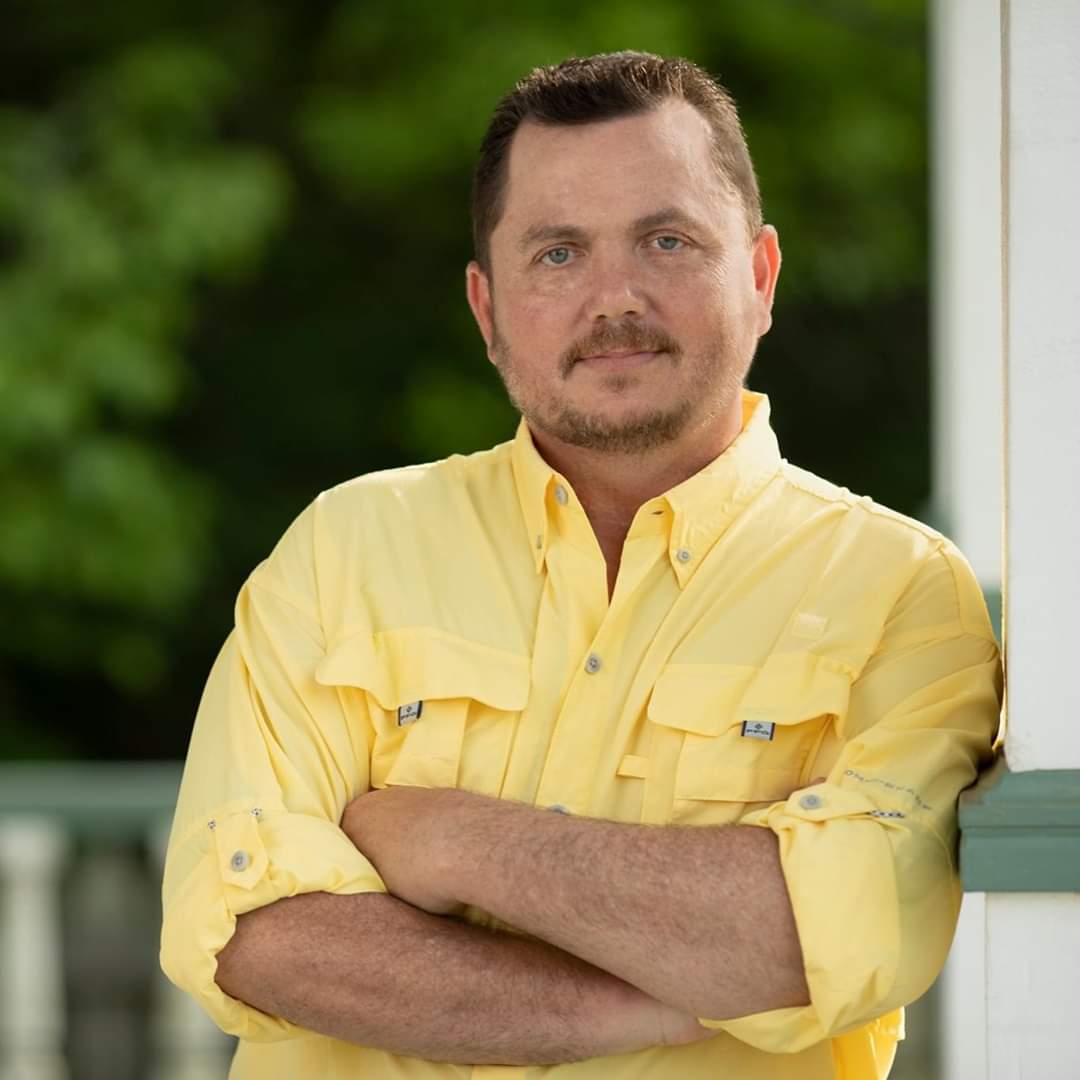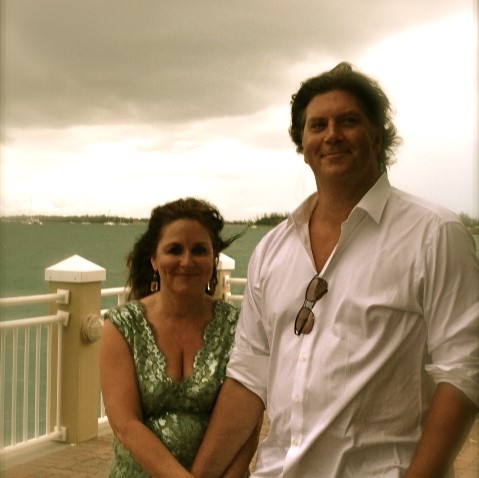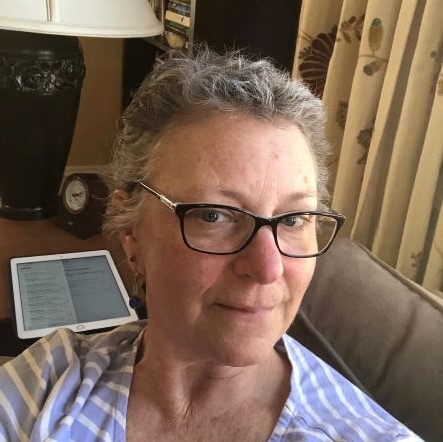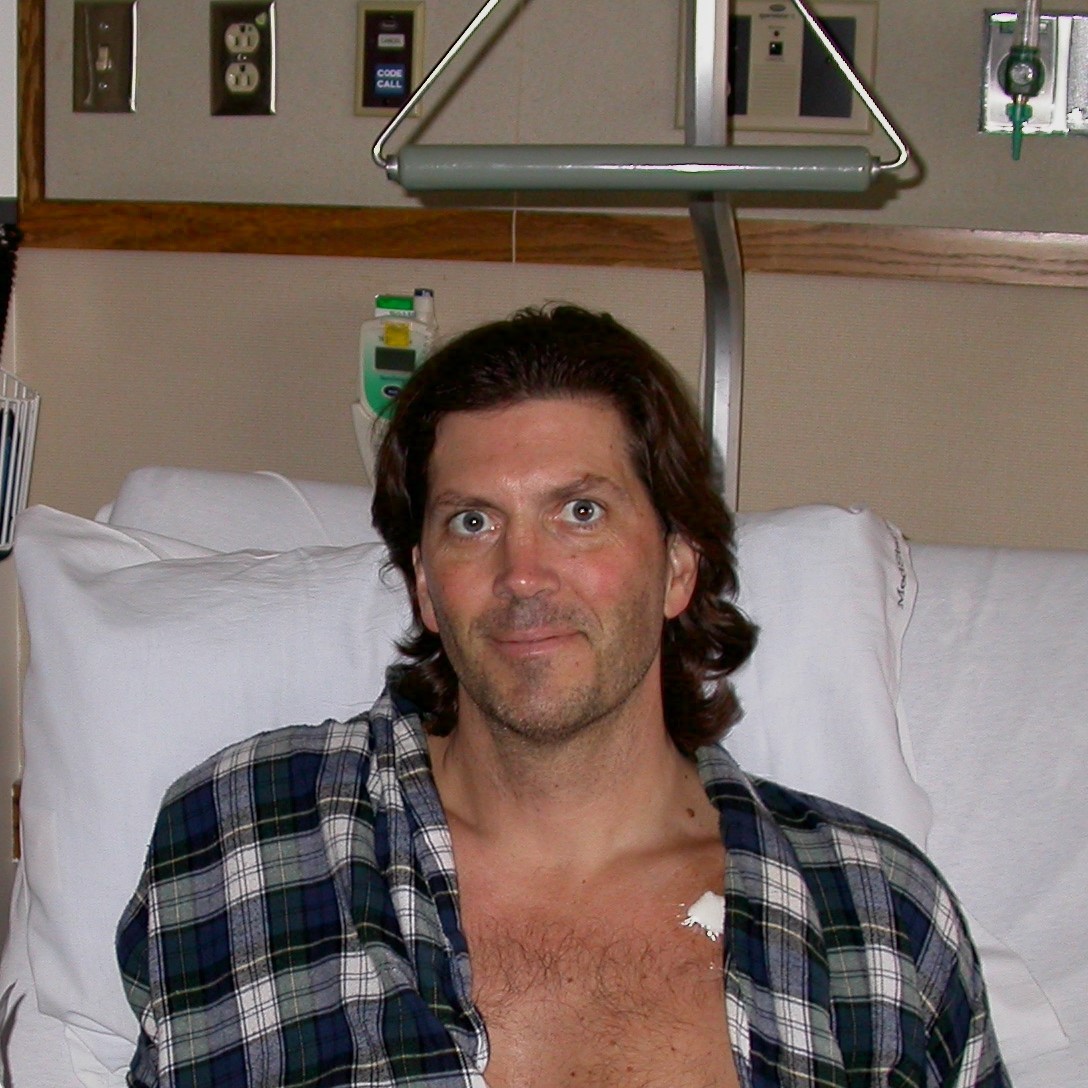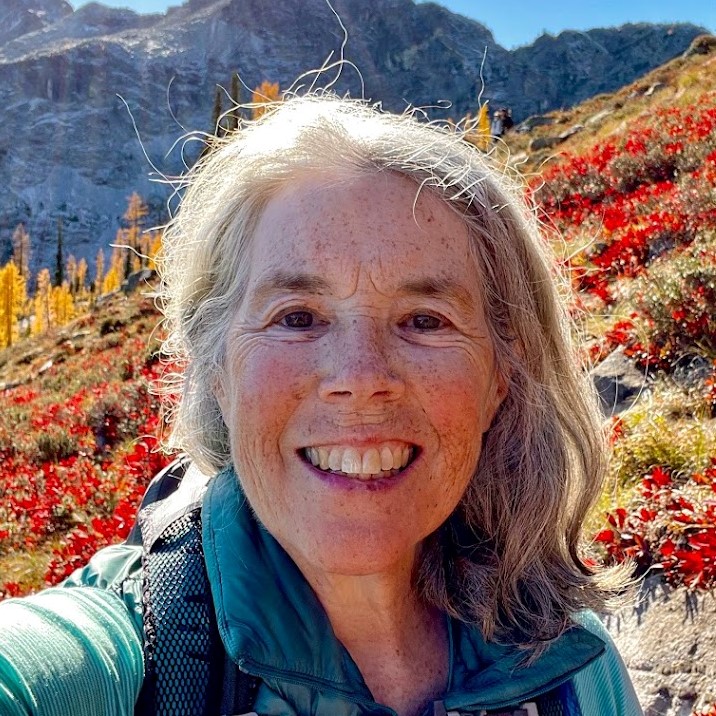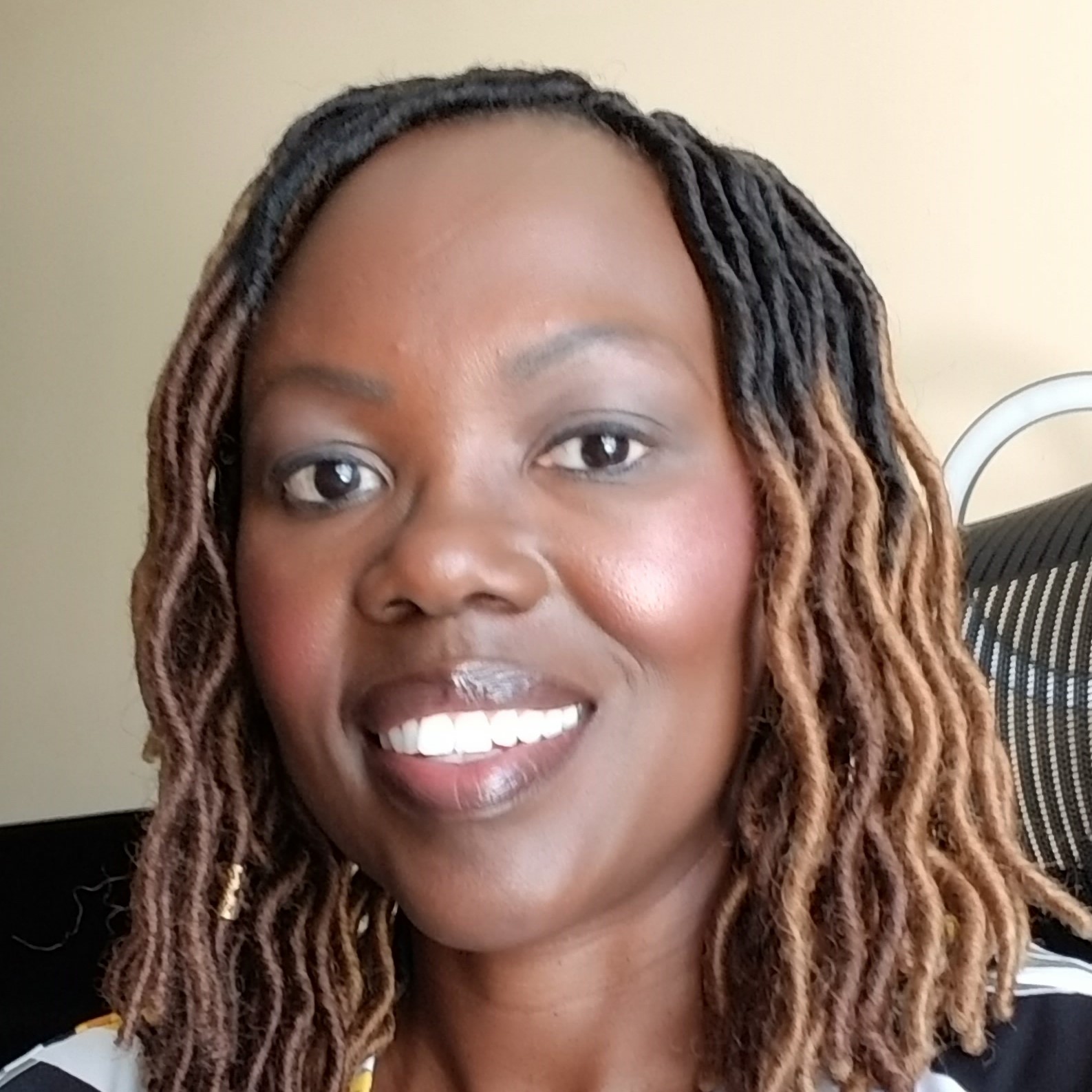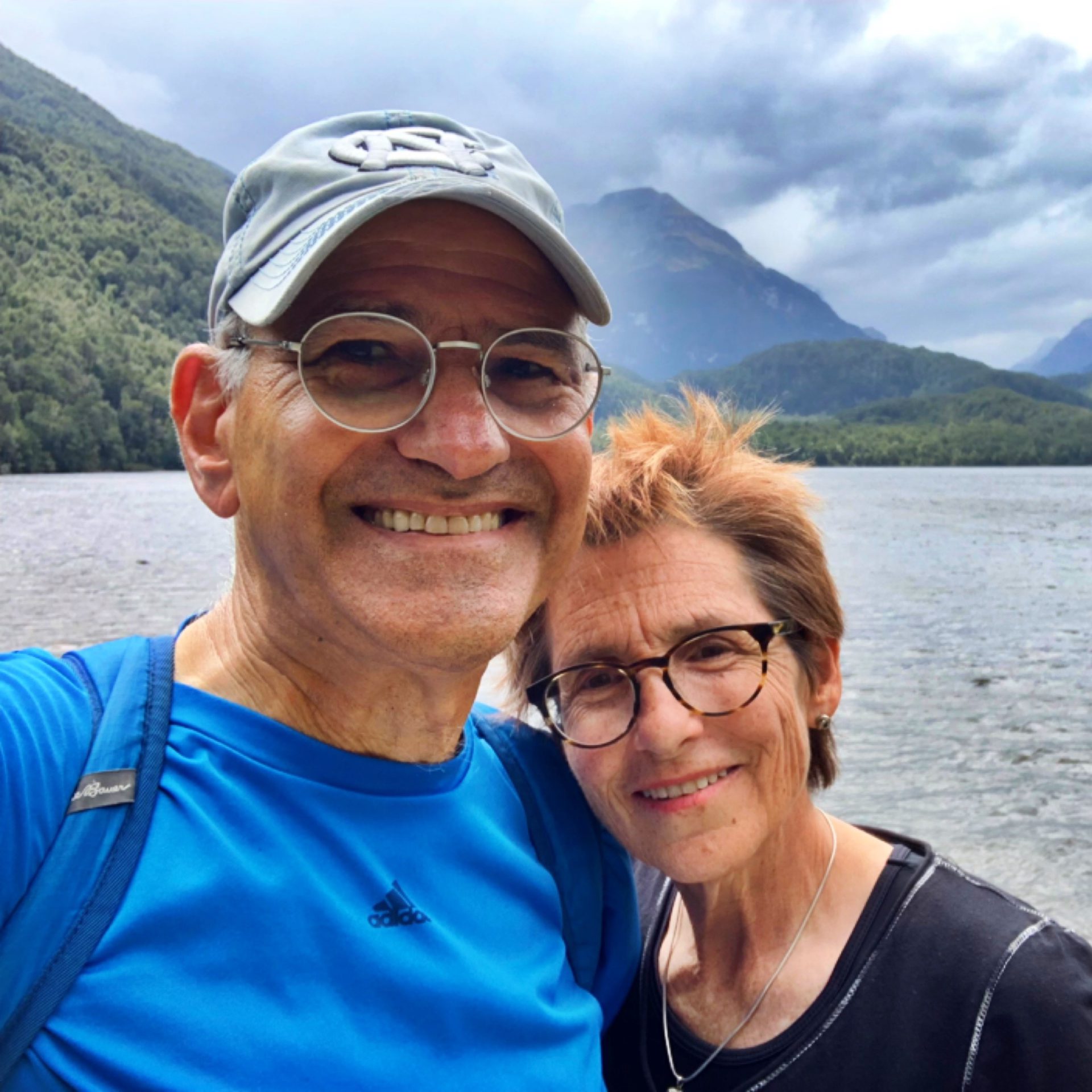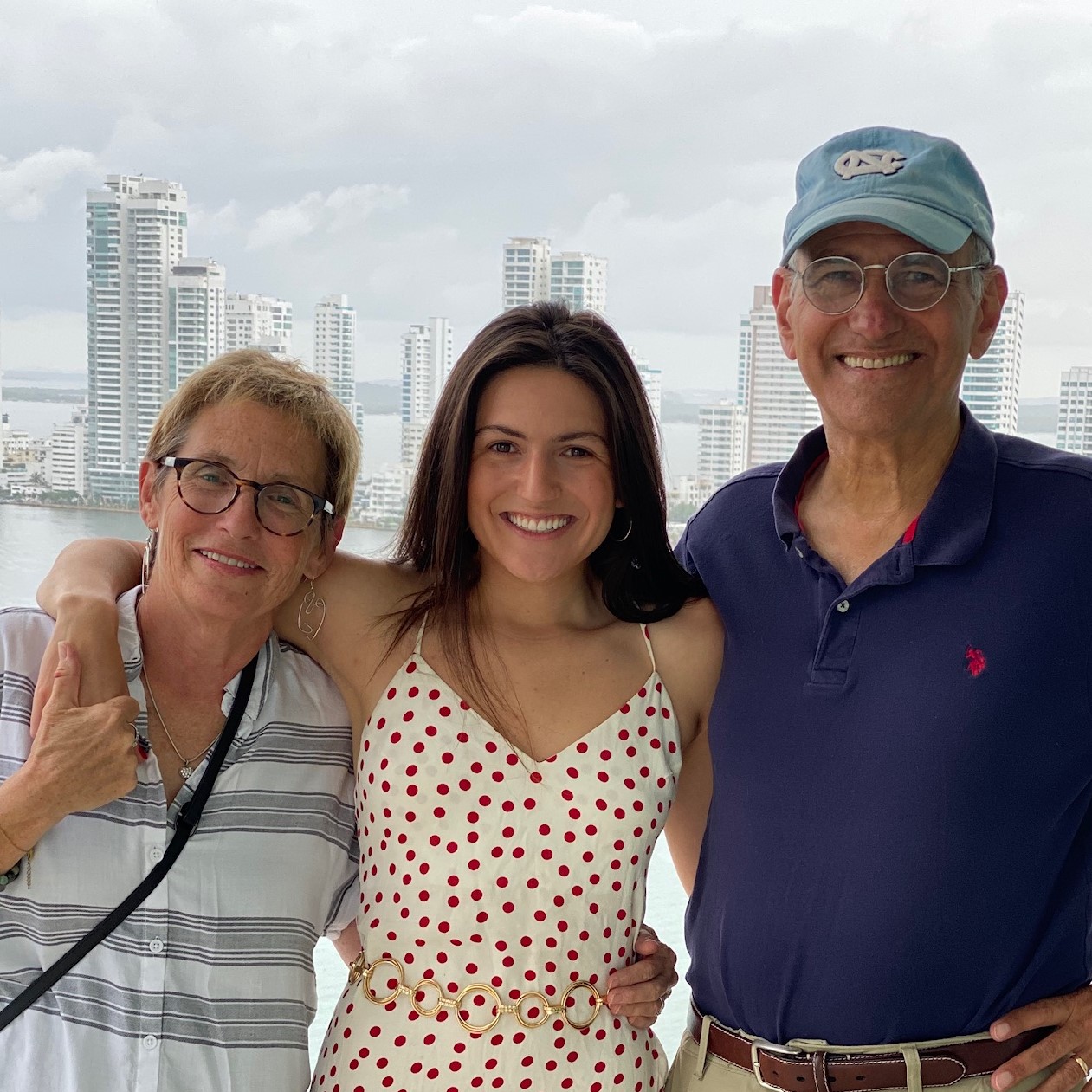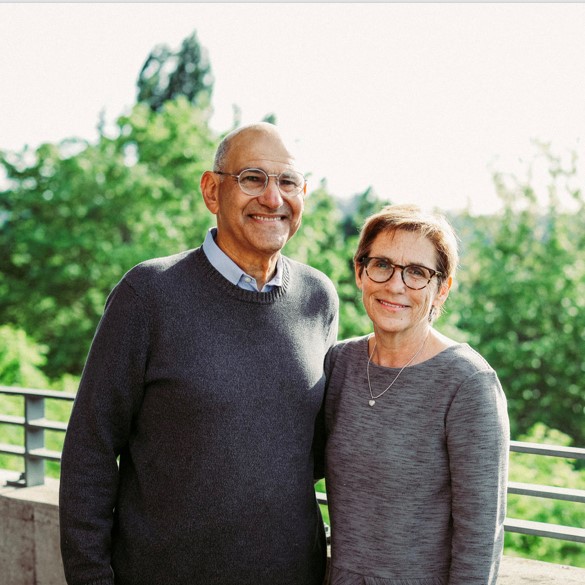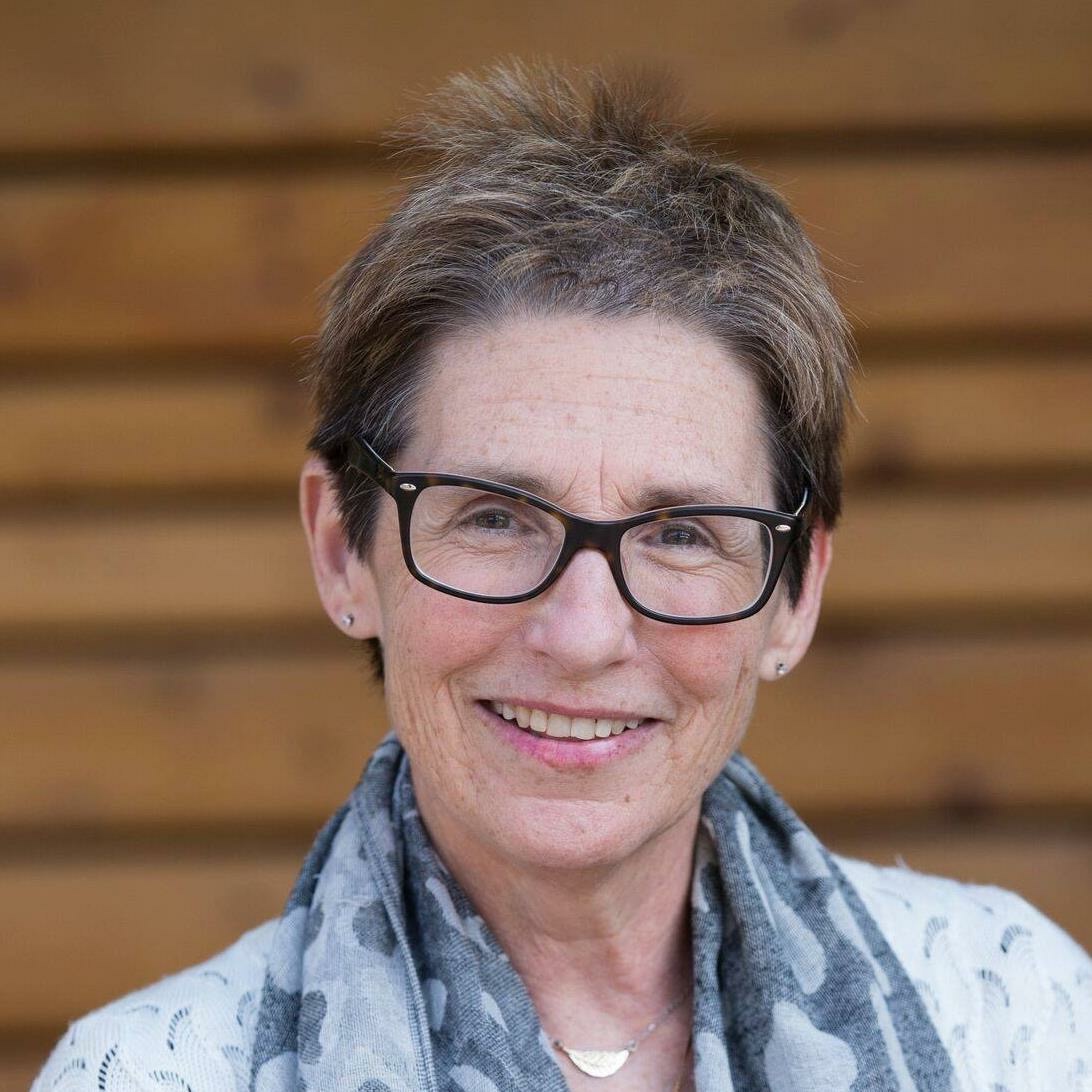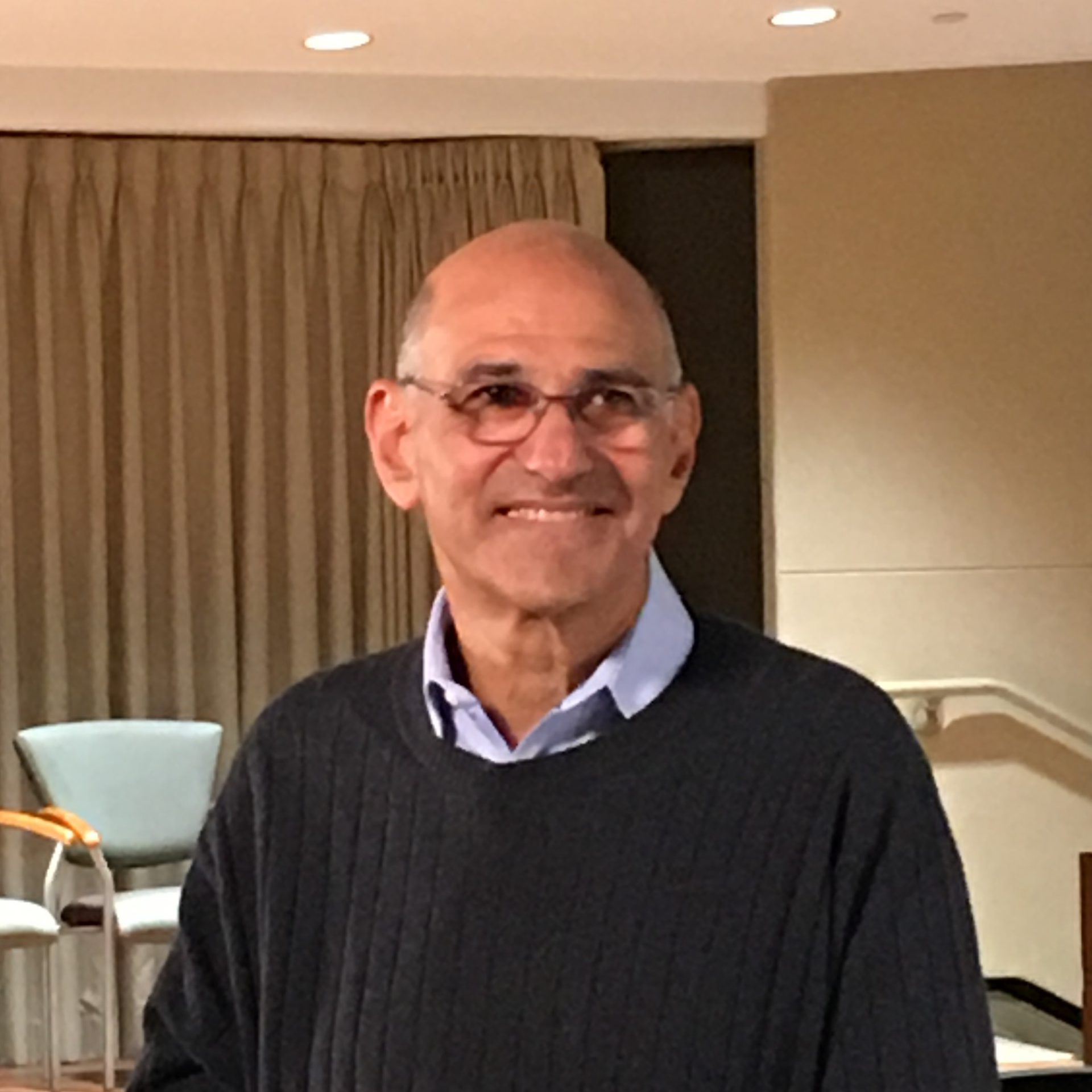Feeling Loveable Again | Cancer Friends
Featuring Annette La Fontaine
Hosted by Andrew and Esther Schorr, “Cancer Friends” highlights stories and lessons from cancer survivors and their support system. For more “Cancer Friends” episodes, you can find them on our video channel here!
This segment focuses on Annette La Fontaine, who was diagnosed with breast cancer in 2021. A series of events left her feeling broken and unlovable. However, support from Annette’s children and friends helped her through treatment and a bilateral mastectomy.
Annette shares how stress may have contributed to her health problems, how she was a part of her treatment decisions, and how she moved from feeling unlovable to feeling like the universe has unloaded love on her.
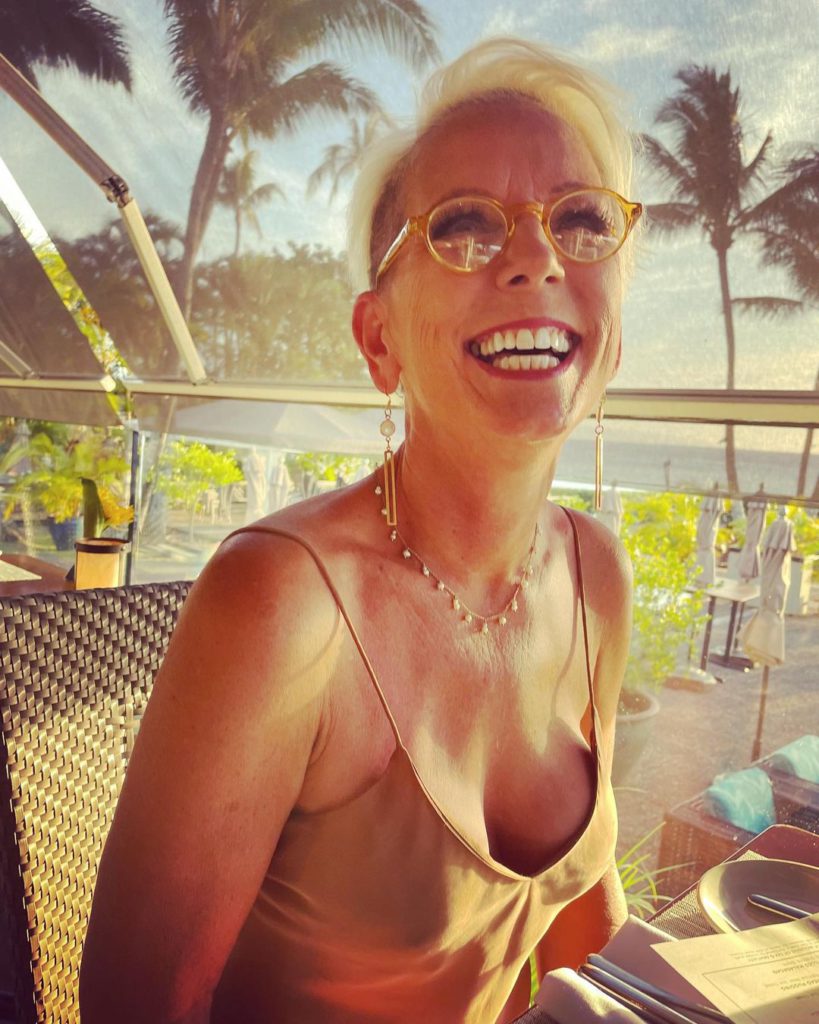
- Introduction to Annette
- Stressors in life
- Being diagnosed with cancer
- Deciding next steps
- Dealing with the emotions of a diagnosis
- Support through the journey
- Feeling unlovable
- How did you get to where you are now?
- Finding love again
- What advice do you have for others?
- Advice for single women with cancer
- Taking daily medicine
- Conclusion
This interview has been edited for clarity. This is not medical advice. Please consult with your healthcare provider for treatment decisions.
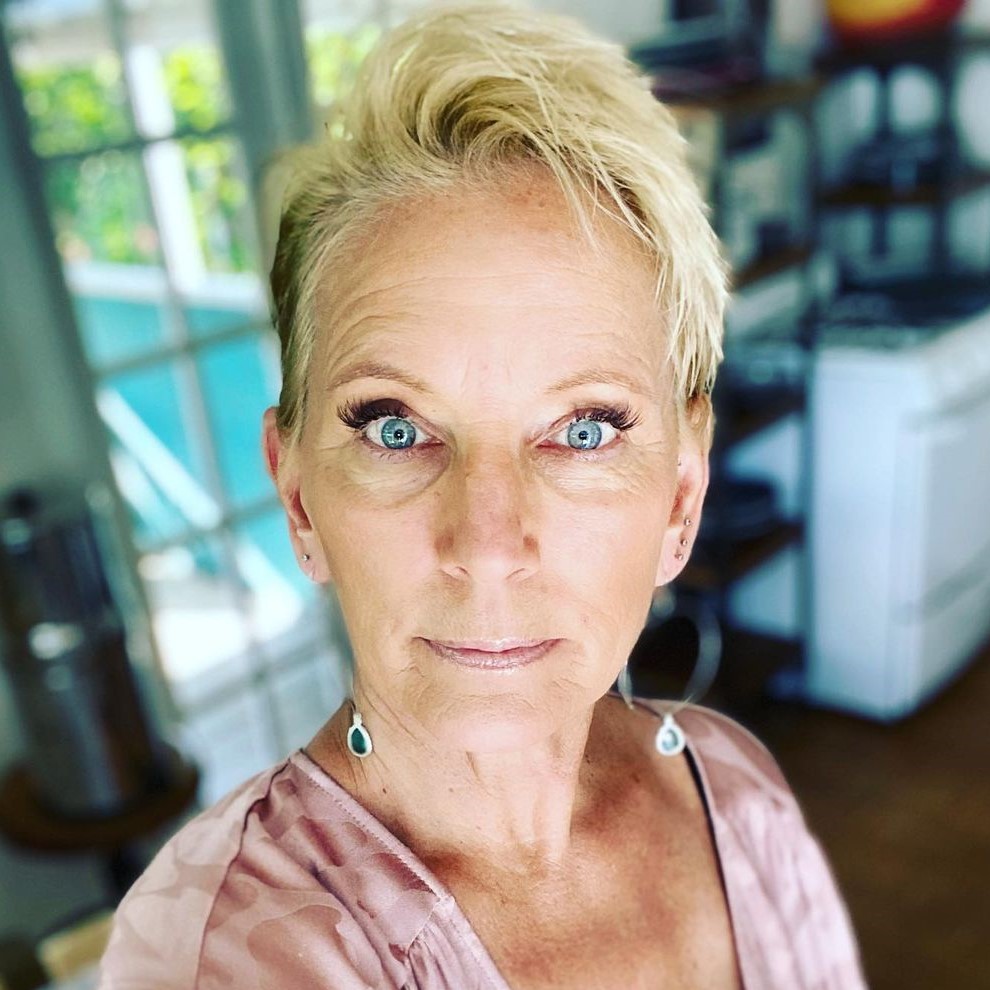
During that dark time, that initial time, I could not have even foreseen how I am now. I’m happy. I’m super comfortable in my body. I’ve actually come to love this body again.
Annette La Fontaine
Introduction to Annette
Andrew, The Patient Story: Hello, it’s Andrew Schorr in San Diego with my wife.
Esther, The Patient Story: Esther Schorr.
Andrew, TPS: This is another episode of our regular program, Cancer Friends. Thank you for joining us. Here is a friend, and that is Annette La Fontaine, who joins us from nearby in Leucadia, California, part of San Diego County. The reason we know her is because now she’s our massage therapist.
Esther, TPS: Oh, my God, we love Annette.
Andrew, TPS: We’ve begun to learn Annette’s story and we wanted to share it with you. Annette, thanks for being with us.
Annette: Yes, my pleasure. Thank you for having me today.
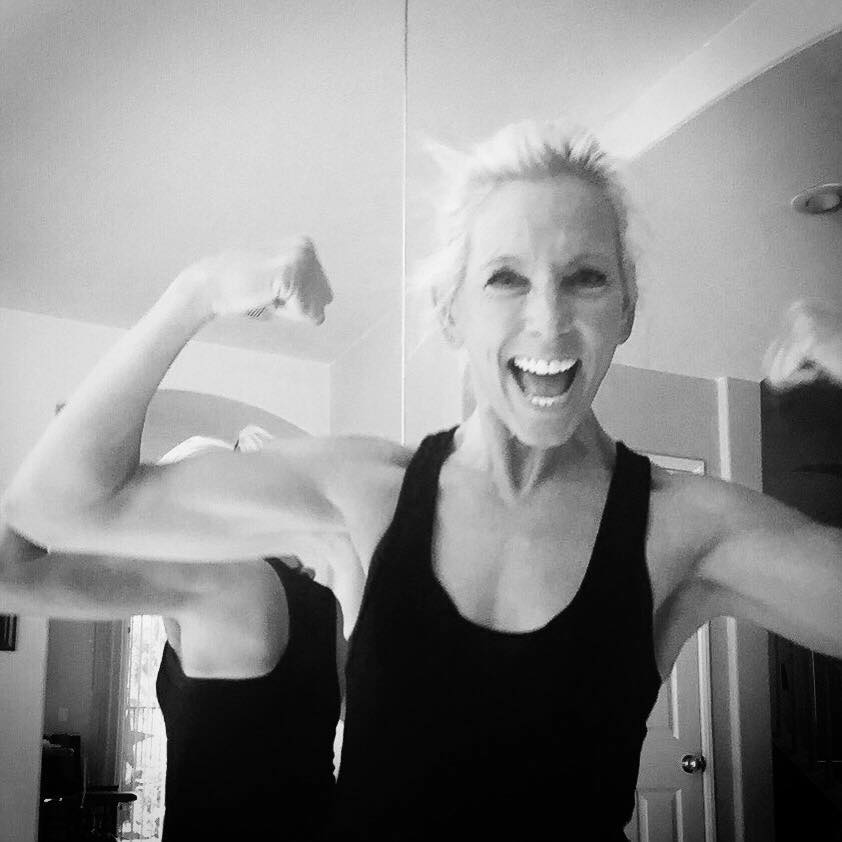
Stressors in life
Andrew, TPS: I’ll just give a little background. Annette has had some real stresses in her life. She had a marriage to a man who [Annette describes] as difficult, with bipolar disease [and] some drug issues. Eventually you separated.
Then with 3 children, 2 of them became quite ill. Your daughter developed Hodgkin lymphoma as a teenager. While she’s fine now, that was a big stressor.
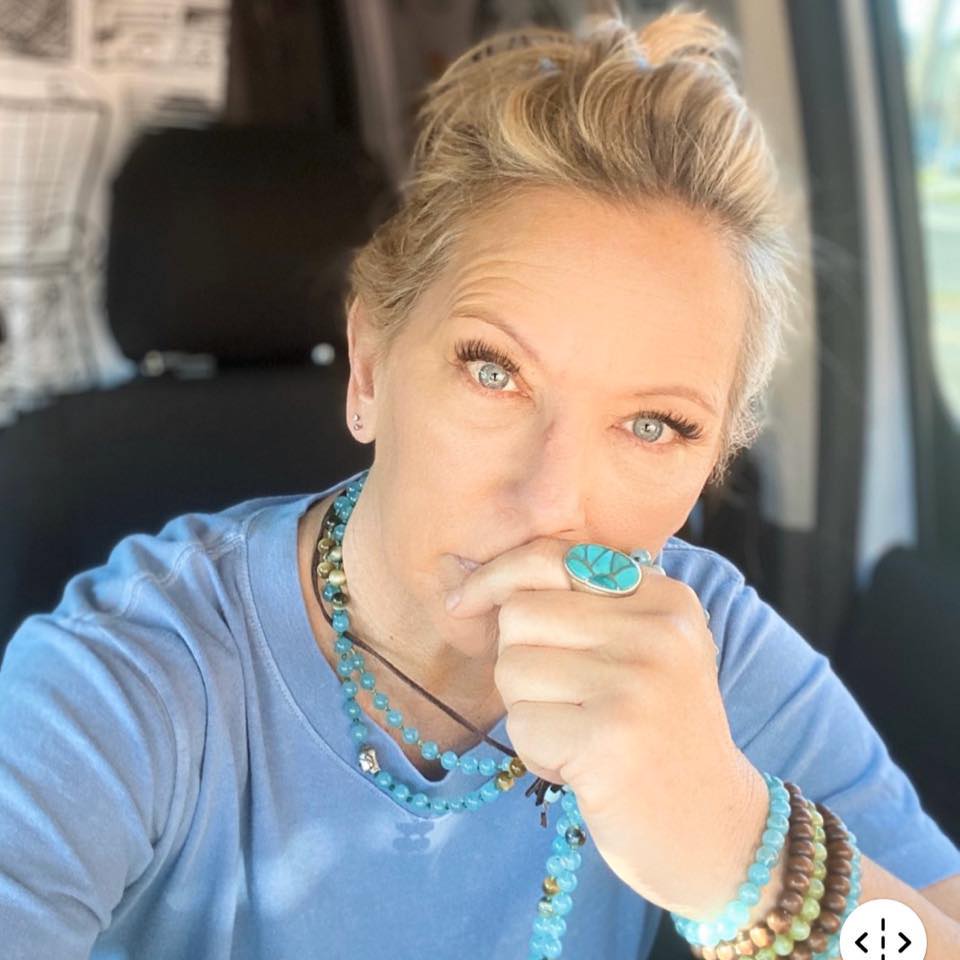
Annette: Huge stressor.
Andrew, TPS: I can’t even imagine a child with cancer. Your athletic son, 1 of your 2, became really debilitated, and [it] turned out to be Crohn’s disease with a bleeding disorder. Bad news, right?
Annette: Difficult combo.
Andrew, TPS: How stressful was your life? You eventually became a breast cancer patient. We’re going to talk about that. Would you say that stress was really, really deep for you?
Annette: My integrative doctor says to me that cortisol is my worst enemy. I bathed in cortisol for probably close to a decade. Life brought me many hardships and challenges. We all survived it. We all got through it, but I think it takes a toll on you.
I don’t know if it’s causational, but I think it’s definitely part of my journey that allowed this to erupt in my life. [2020] was a very stressful year. Then in 2021, I was diagnosed and I think my body just gave up the ghost. It was a lot.
Esther, TPS: Just for folks who may not know, when you refer to cortisol, that is the process or the chemistry that happens when somebody is under extreme stress. I know from reading, there is a medical physiological connection between high stress, releasing cortisol and what happens.
Annette: It changes our physiology. It has a real effect on us. Measurable effects.
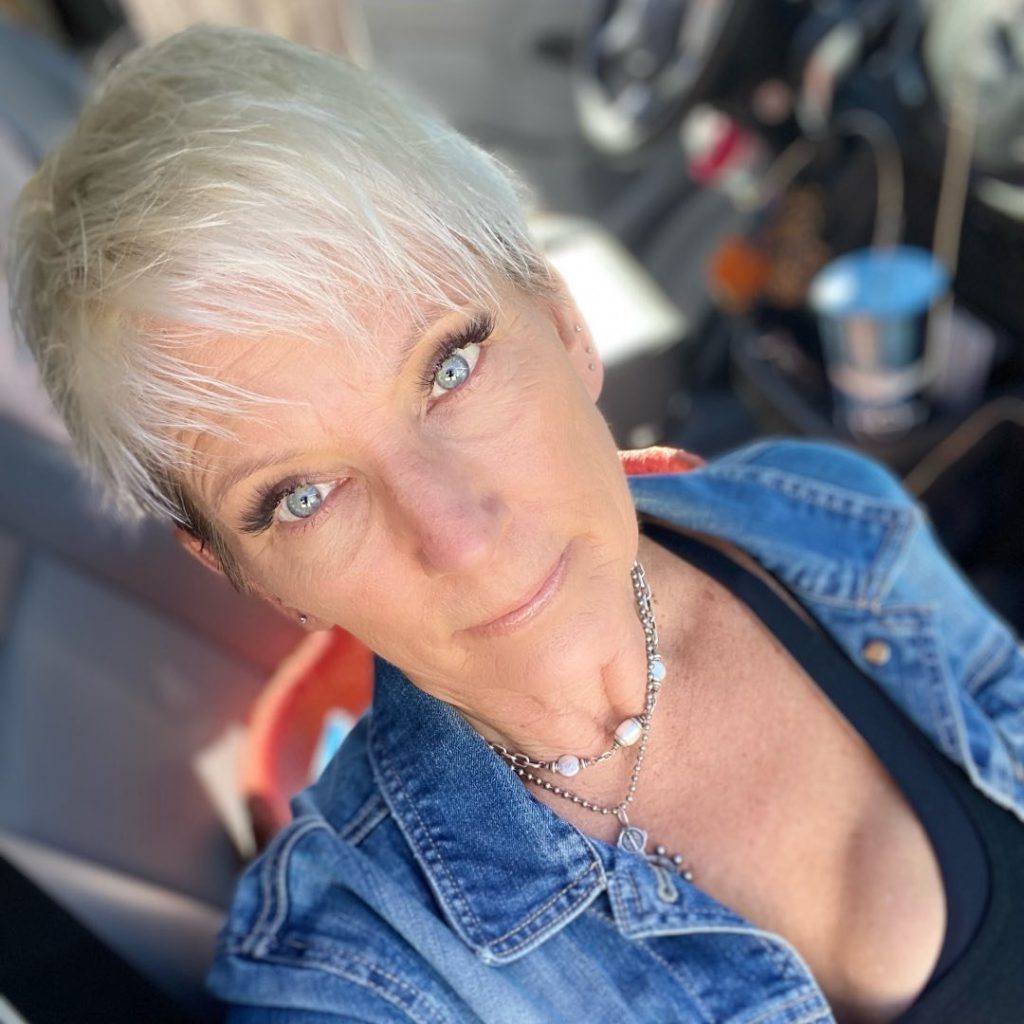
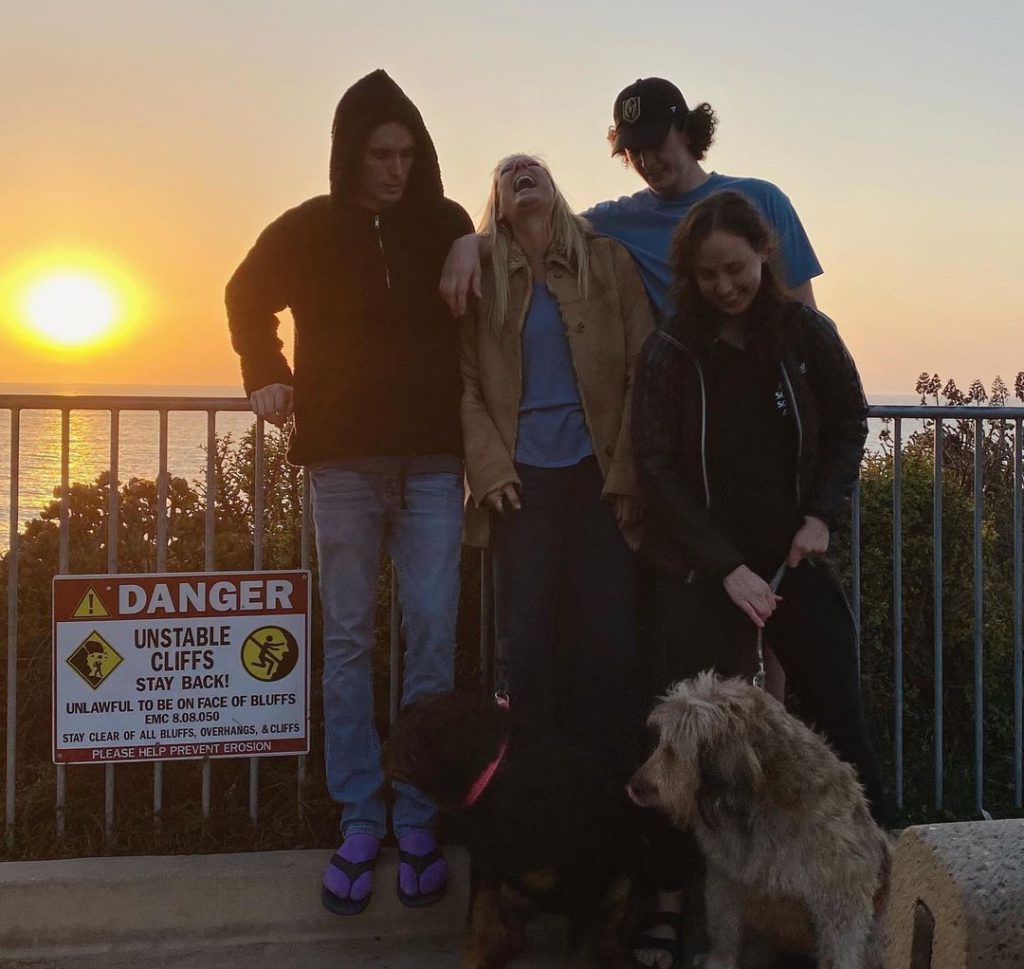
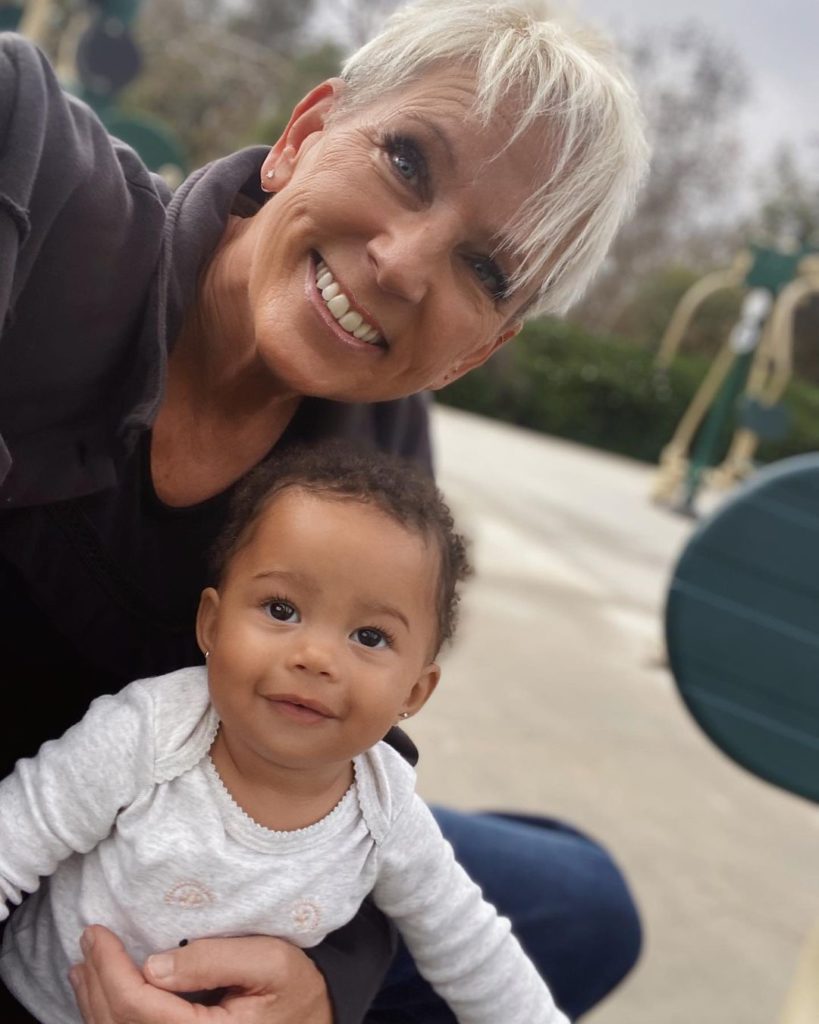
Being diagnosed with cancer
Esther, TPS: What happened?
Annette: I found a lump. I can’t even say I was doing a self-exam. I was just showering. I had a very lean body mass and it was very evident. Suddenly, overnight, there was a lump. It was in my breast, and that’s not a good place to find a lump.
I panicked a little bit. I was getting ready to go out on a dinner date. I called my girlfriend, and I said, “Should I stay home and freak out, or should I go on this date?” She said, “Well, if you have cancer, you might as well go out and enjoy your life. Go to dinner.”
It turned out I did have cancer.
Andrew, TPS: What type of breast cancer did you find out you had?
Annette: I had ductal breast cancer. I was estrogen/progesterone positive, HER2 negative and that’s the thing that you want to have come back.
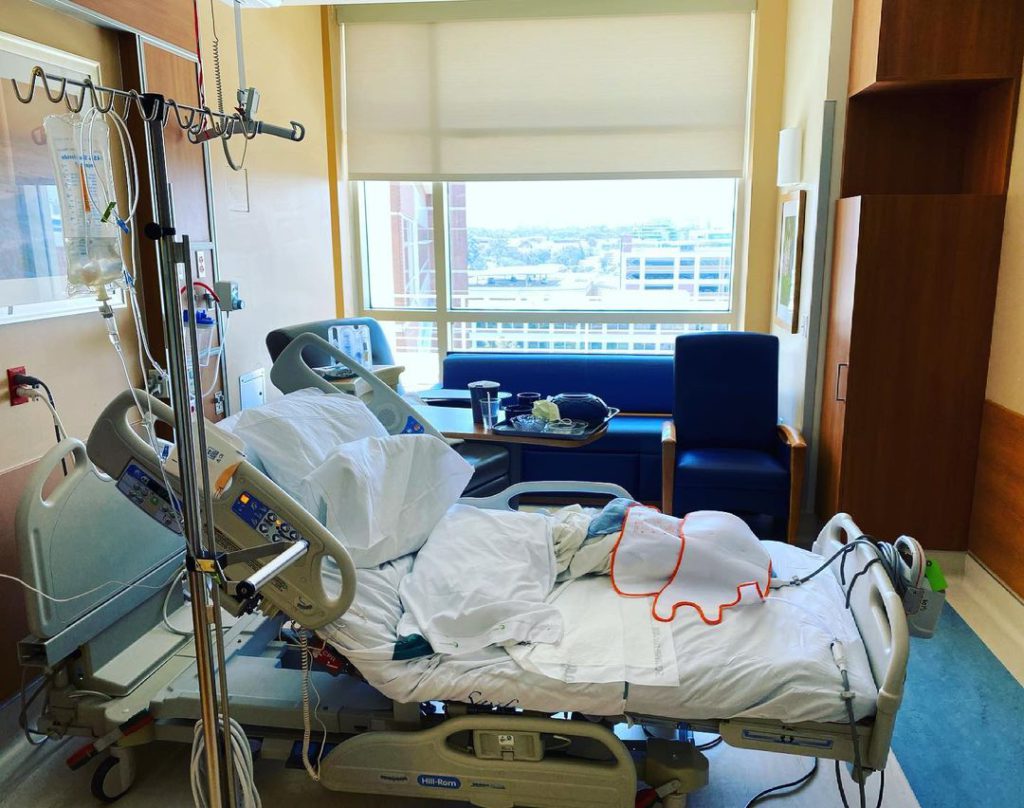
Deciding next steps
Andrew, TPS: You talk to the breast cancer doctors. The doctors are saying, “What do you want to do?”
Annette: Yeah, and I said, “I don’t want to have cancer. That’s my choice.” They were like, “Okay, how do you want to get there?” I was through Scripps [MD Anderson Cancer Center], and they came to me as a team. They said, “We’re going to get you through this. We’re very good at what we do.”
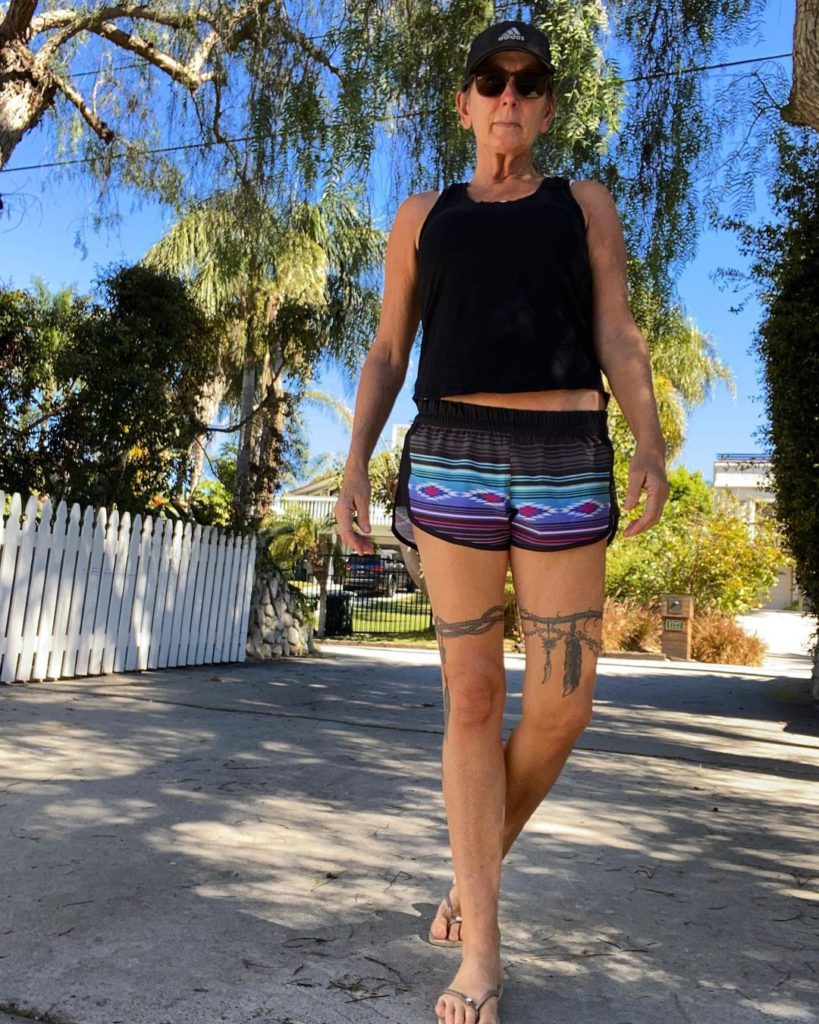
They assign you a navigator. I’d never heard of it, but a navigator is somebody who helps you navigate this process, because you are deer in the headlights. You don’t know what’s going on. It’s a lot of details. It’s a lot of coordinating. They help you get through this process.
They approached me that they were very good at what they did. That gave me confidence to hear them state that out loud. This person was my go-to person for all of my questions, and I had a lot of them. I was very thankful for her and she was very responsive.
On the other side of it, I wasn’t completely happy with all of my care. There were some things that didn’t go well, but throughout all of that process, I was able to communicate with my doctors and get through all of the issues that did arise. I feel like I had good care, and in the end I decided I wouldn’t have time [for a second opinion].
During my diagnosis, I found out I was going to be a grandmother. I just was like, “I’m going to just go big. I’m just going to do bilateral. I have had my kids. I’m post menopausal. I’m going to just do a bilateral because I think that gives me the best chance of survival.”
Andrew, TPS: I understand you put everything in a flowchart for you to try to get to a decision.
Annette: Yes, because I was shocked they wanted me to be participating in the decision for my treatment. I thought that was kind of funny. I don’t know. How do you know? How am I going to know?
Yes, I made a flowchart. I just started doing research, talking to people, talking to doctors, [and] going online. I ultimately did make a flowchart. My flowchart started with, “Just ignore it and do nothing and hope for the best.” That didn’t have great outcomes. [It went] all the way to a radical bilateral mastectomy. I would be one step back from that. I had a skin-sparing bilateral mastectomy.
Andrew, TPS: And ultimately two reconstruction surgeries [and] an implant.
Dealing with the emotions of a diagnosis
Andrew, TPS: Let’s talk about the emotional side. There had been a car accident. You had that, and you’re being wheeled in for surgery. What was going on in your head as far as your life and relationships?
Annette: I think at that stage, I was just overwhelmed. I was not keeping it together. I was crying all the time. I’m probably going to cry now. I was with a man in what I thought was a great relationship. [After] my diagnosis, he ended it because he had lost his first wife to triple-negative [breast cancer]. He watched her die a slow, horrific death, and he didn’t want to go through it again.
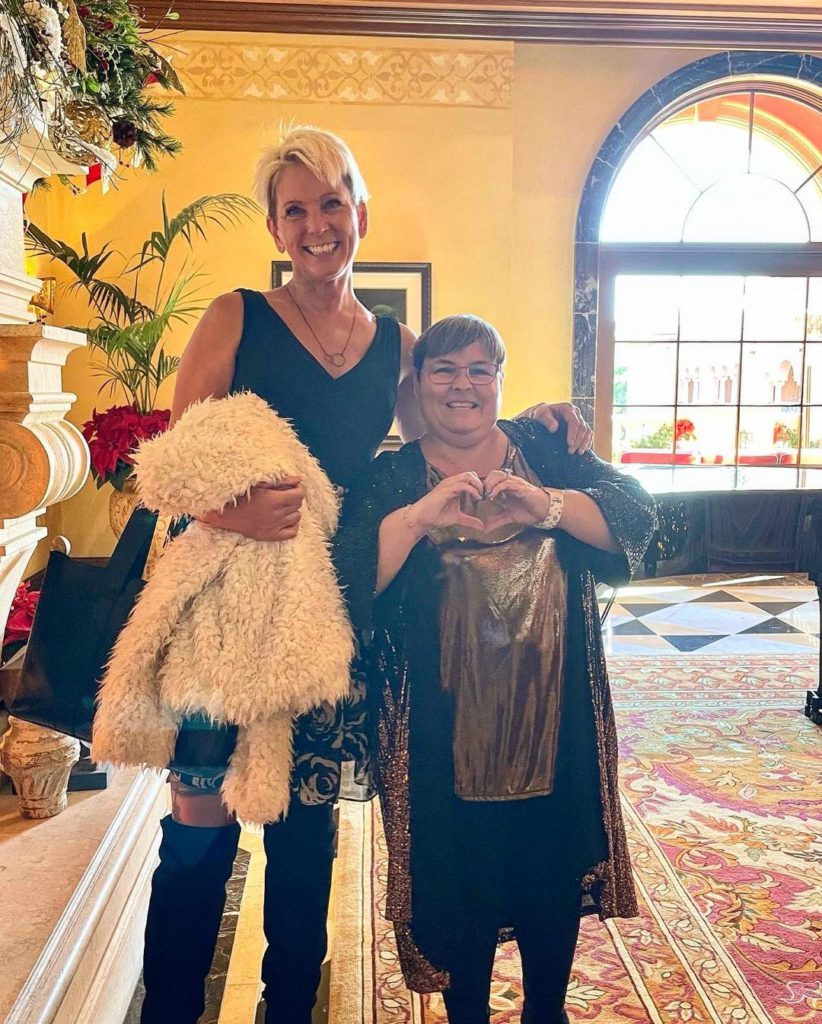
We’d been in this car accident. I went to an orthopedic doctor, who said my cancer treatment took precedence over fixing the injury I sustained. [He] sent me off to do my cancer treatment. The first thing up was this bilateral mastectomy.
I was physically broken, mentally, spiritually, heartbroken, all the ways a human could be broken. And COVID. Go to the hospital alone to have to subject my body to mutilation so that I could continue to try and live.
It was dark and scary. I tried to pray and meditate, and none of my tools worked. For a period of time, I was just overwhelmed. I was not well. My heart rate was insanely high for probably 2 weeks, and it was just a hard time. I don’t know how I got through it.
»MORE: Patients share how they processed a cancer diagnosis
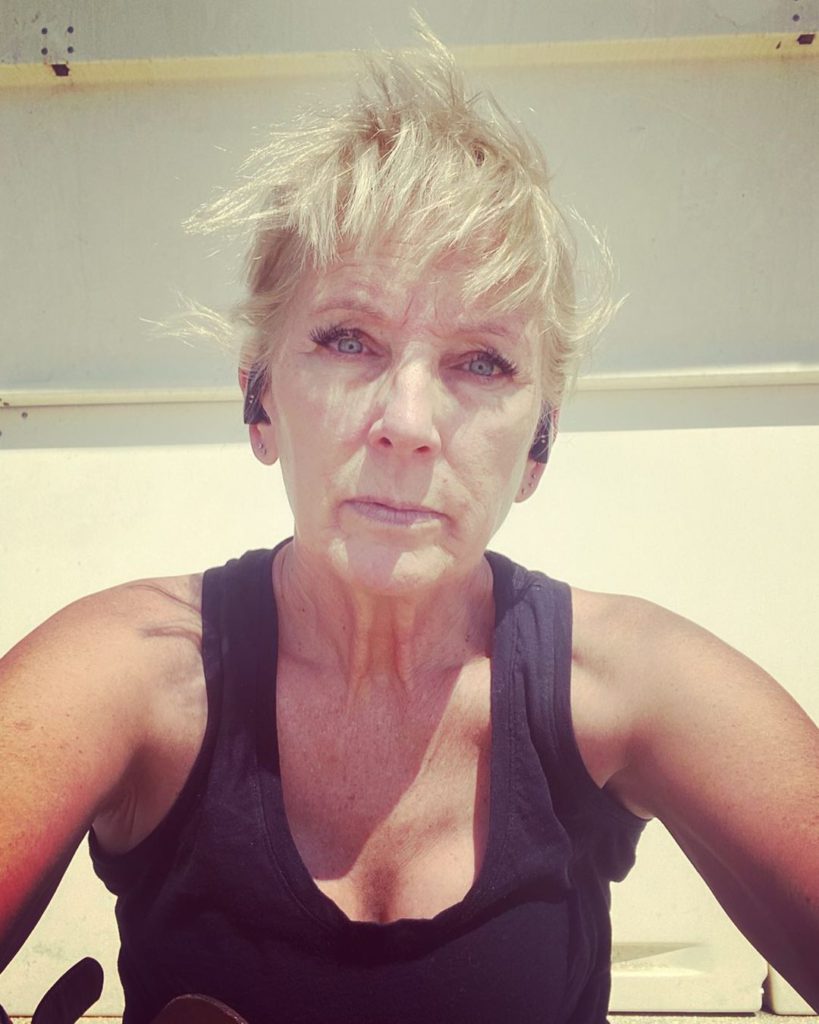
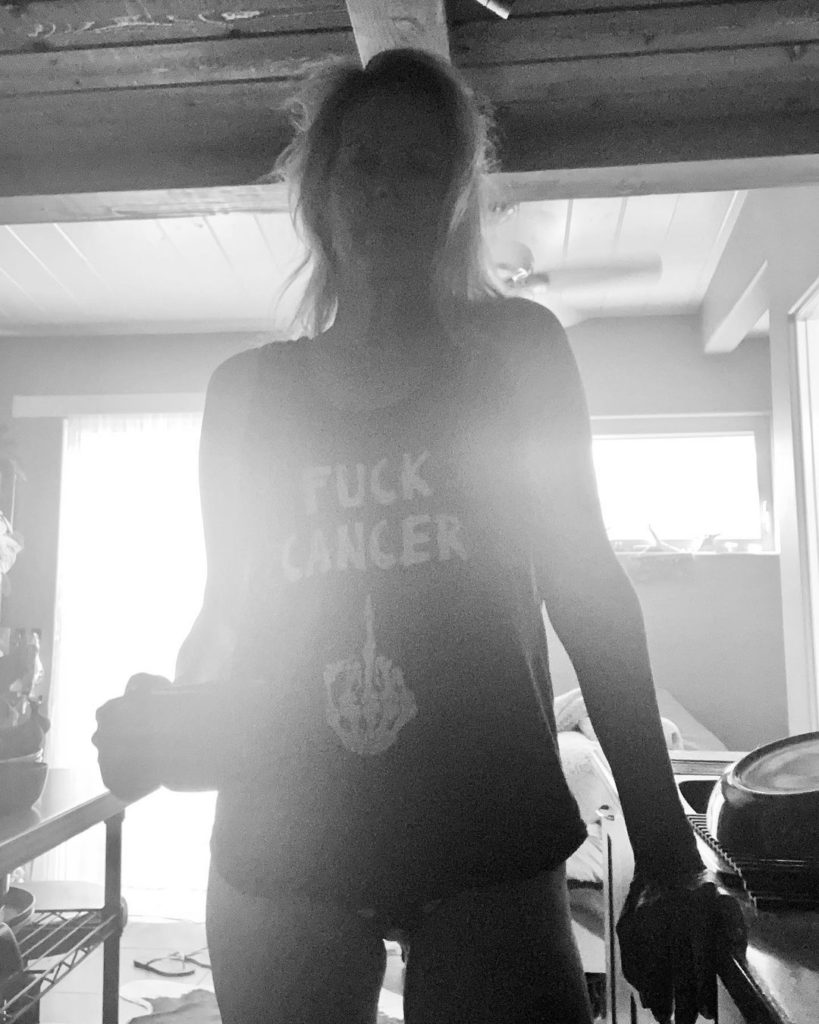
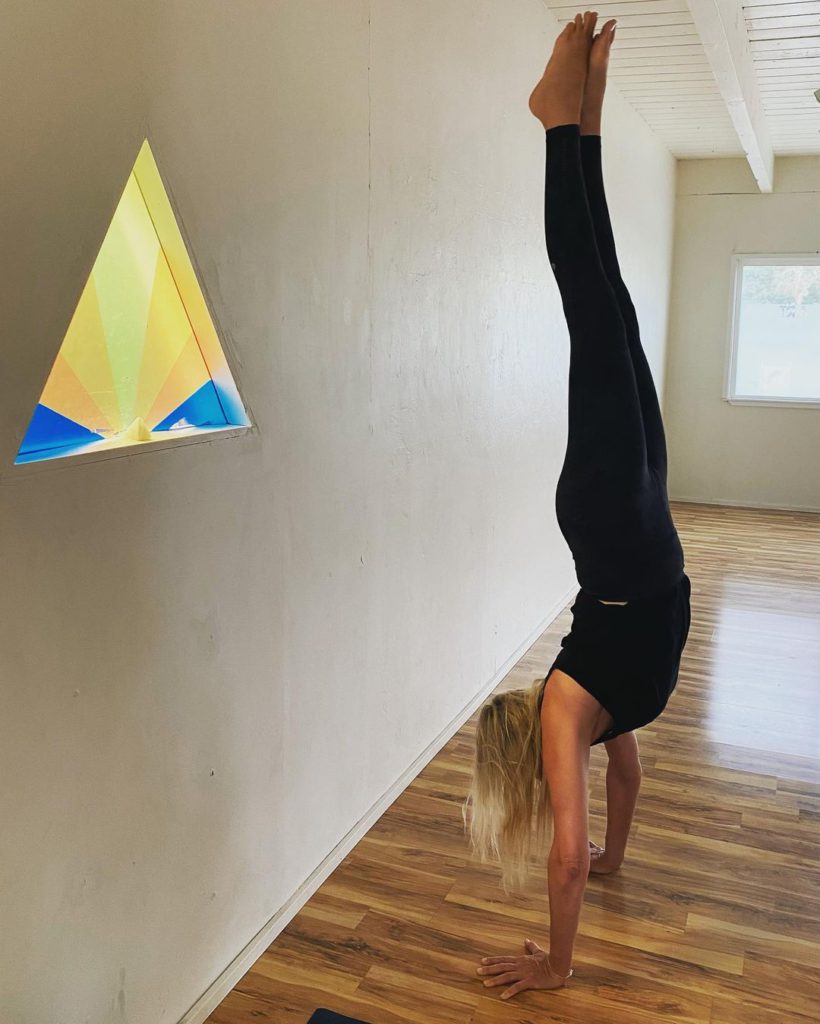
Support through the journey
Esther, TPS: How did you get through it?
Annette: My kids were near. My kids were very comforting. My kids had been through medical trauma themselves, so it was very interesting to hear them parent me back [and] to mirror my parenting back to me.
They held me [and] told me, “It’s okay. We’ll get through it together. We got this. We do hard things together.” They kept me together. It was kind of a surreal experience to reflect back when I said things to them. To have them kind of bring that care to me was lovely.
I have a great network of girlfriends that are like my sisters. They just started coming, and they brought food, pillows, coffee, prayer beads, and hugs. Sometimes I’d come home, and there would just be a little treat at my gates. Just sweetness.
Feeling unlovable
Andrew, TPS: Annette, I know as you were being wheeled in, you had this feeling, “Will anyone ever love me again in a relationship?” Because the man you had been involved with couldn’t handle it.
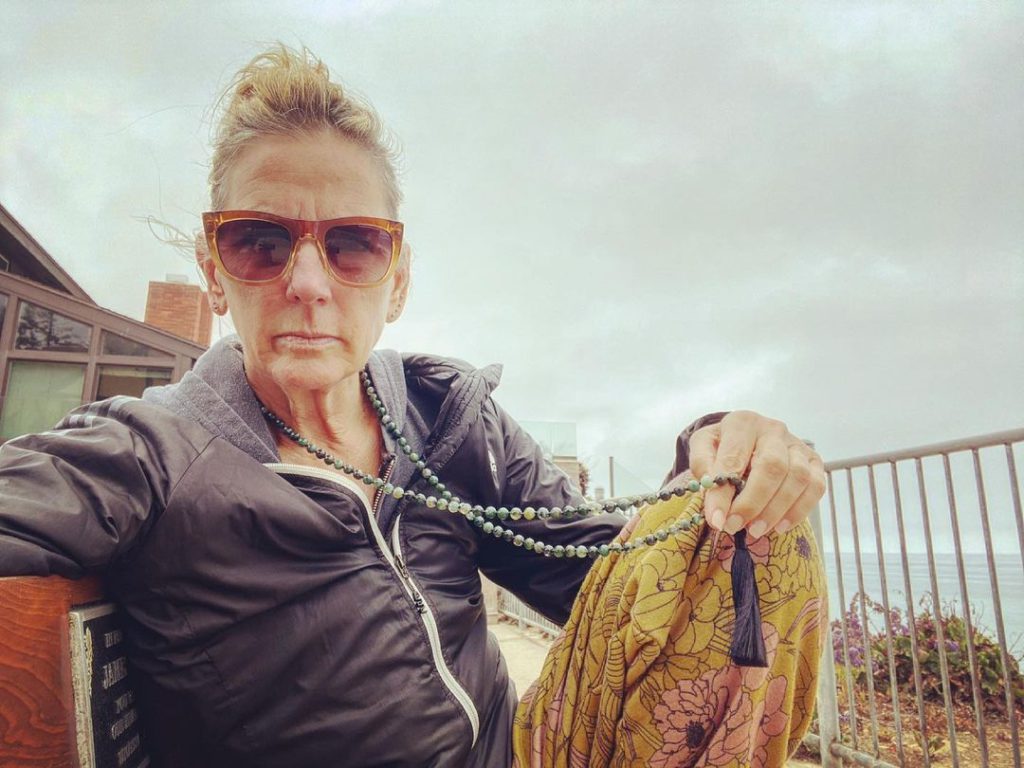
Annette: And you know what that made me feel? I had cancer, but I felt diseased. I felt like it was so gross, this man didn’t want to be with me. It pushed back my heart so hard.
It wasn’t just that he broke up with me, which would have been sad. He broke up with me because I was defective in some way. Something was wrong with me, and I took that in deeply. That hurt.
Then in that scenario, to go in and have my breast removed. One of the identifying features as a woman is being removed. I’m going to have scars. I wasn’t 100% [sure] at that time that I was going to rebuild.
Who would love me? I didn’t know if I could love myself. Would I love me? Would I ever love my body again? I certainly didn’t think a man would ever love me again. I thought that was over.
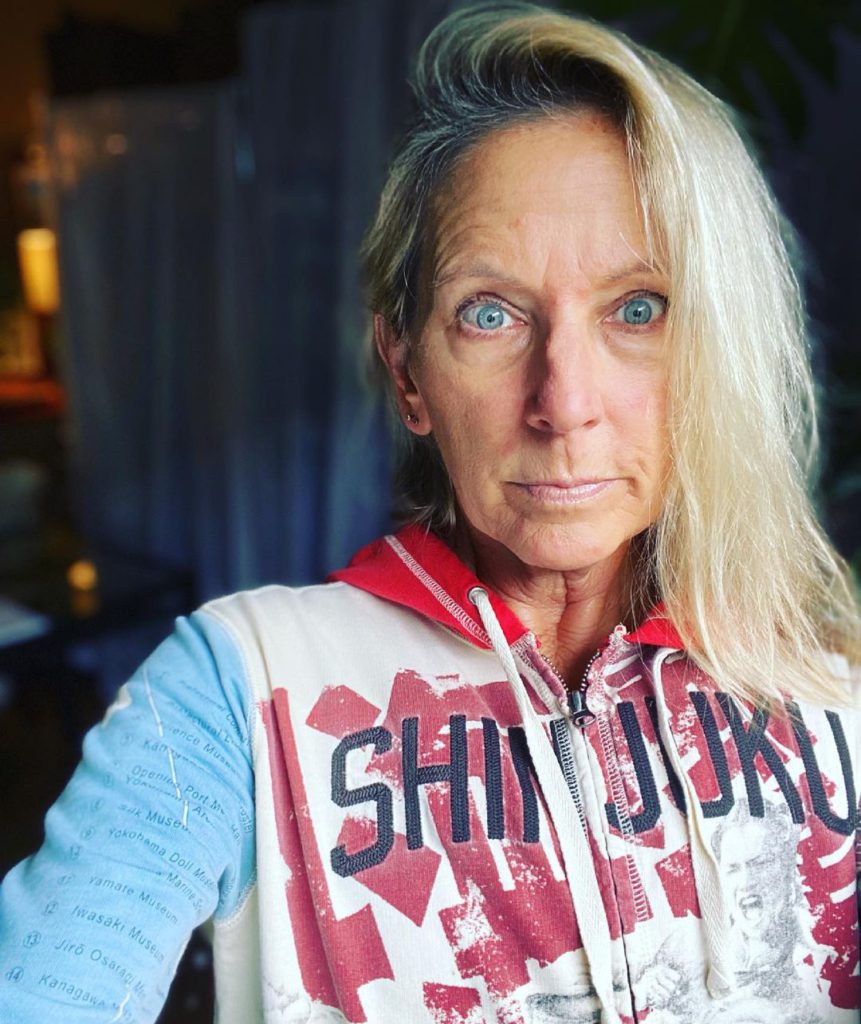
How did you get to where you are now?
Esther, TPS: All very real, honest emotion. It’s completely understandable that you would feel that way. We now know you now. Where did you go from that Annette and that mindset to where you are now? How did you do that?
Annette: During that dark time, that initial time, I could not have even foreseen how I am now. I’m happy. I’m super comfortable in my body. I’ve actually come to love this body again.
I have a man in my life that loves this body. He’s never known my body any other way. He thinks it’s great. To get from that point to this point was a lot of work. It was a lot of work. It just creates a lot of existential thought about who you are. Who am I? What does it mean to be me, to be a woman, or to be lovable? I had to do kind of a deep dive.
Andrew, TPS: I understand you see a therapist, who’s helped you dig into all the trauma you went through to kind of sit with it to get past it.
Annette: Yes. We’ve done a lot of work. Much laughter about it. Also many tears. I got through the initial medical stop [and was] moving forward. Eventually, I circled back to have this orthopedic work done that I had to postpone. In that work, I had to be in a couple of surgical procedures, and I lost it. I had a meltdown.
It wasn’t because of what was happening. It was because it had triggered my surgical stuff for my cancer. In that moment, I kind of had this out-of-body experience, like, “Oh, I’m in a room full of doctors, and I am falling apart right now.”
In that moment, I was like, “I think maybe I need to get some help. I think that there’s more trauma in here that I need to work through.”
Finding love again
Andrew, TPS: You alluded to meeting someone.
Annette: Yes.
Andrew, TPS: Tell us about that and how you actually met someone.
Annette: I was at a gathering of women. We tend to gather on full moons because we live in North County, San Diego. Everybody was sort of passing around their phones. They’re all on a dating app called Bumble.
I was pretty fresh off my third and final surgery, and I thought maybe later in the year, I maybe would start thinking about dating. But I downloaded the app. One of the women in the room grabbed my phone [and] just did my profile.
I started swiping just out of curiosity, and there was a gentleman who just caught my eye. He was very dapper. We messaged a little bit, and that evolved into a first date. On that first date, we were really hitting it off. We just had a lovely conversation. I love his energy and demeanor.
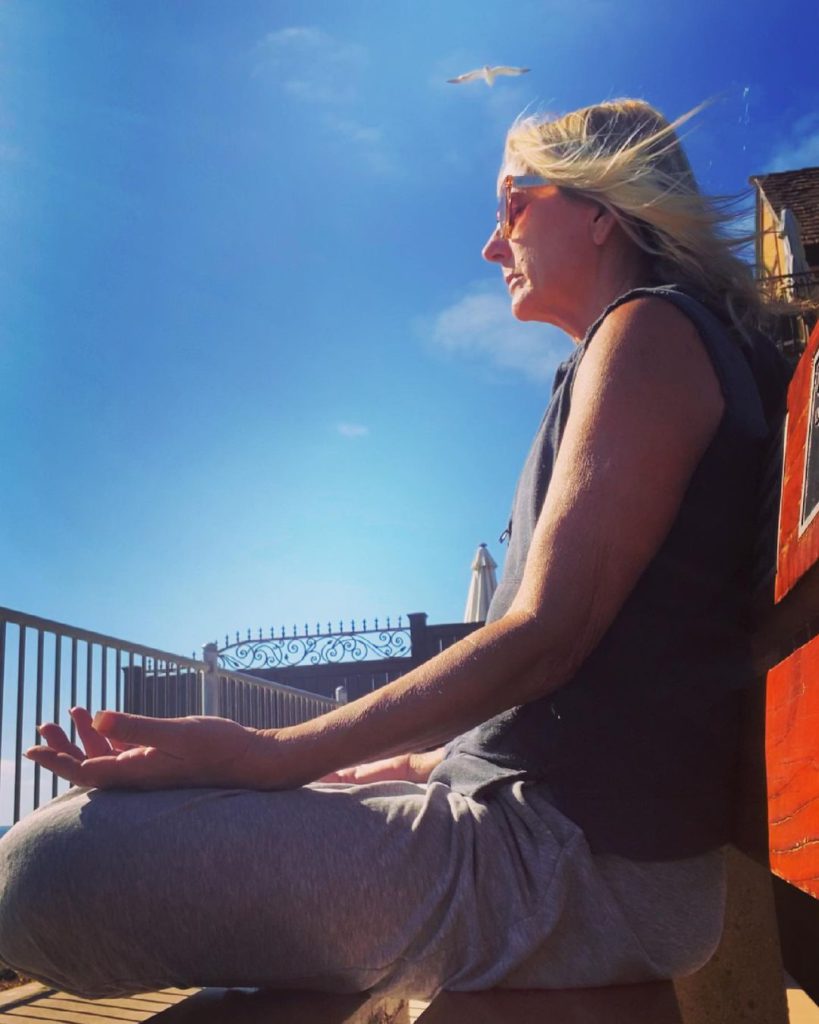
I got it in my head, like, “Should I tell him I have cancer?” This was a big thing in my life, and here I am on a date, having not thought this through. I just blurted it out to him in our conversation. I said, “Here’s this journey I was on recently,” and he listened. He made eye contact, he was kind, and he asked a couple of questions. He was so sweet.
At the end of my story, he kind of paused. He said, “About 4 years ago, I had cancer, too.” He had prostate cancer, and his whole journey was, “Am I going to be lovable? Am I going to be functional? Who am I as a man, if that’s impactful to him?”
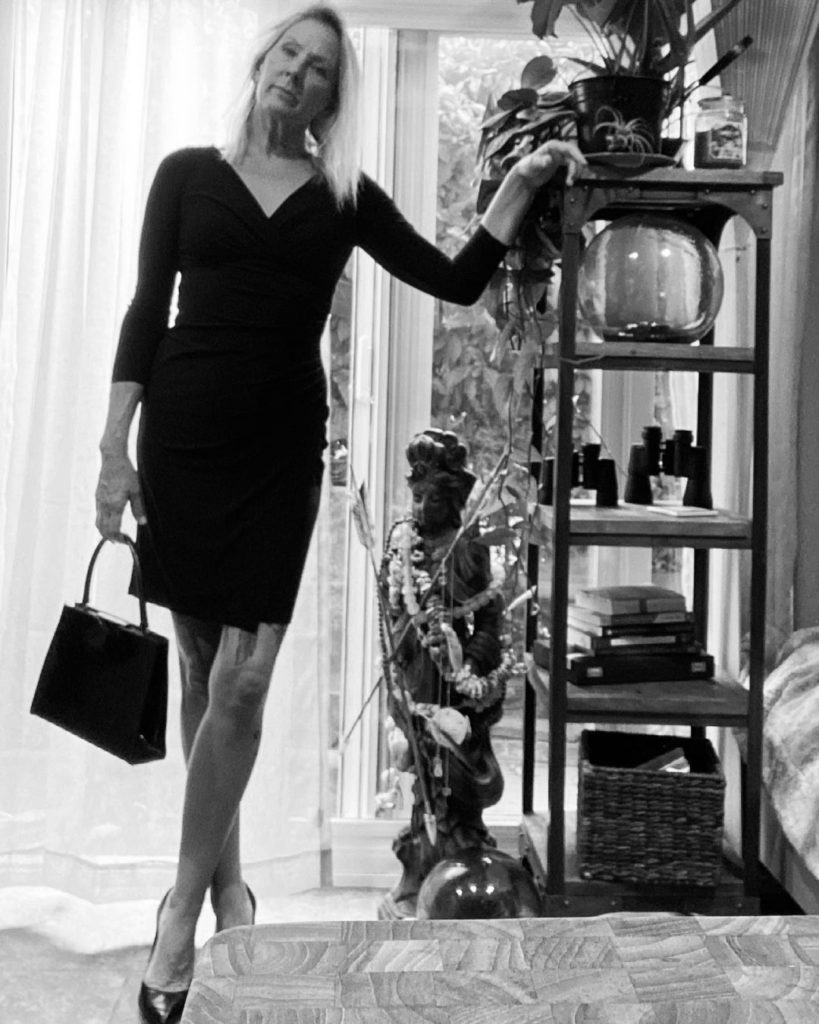
It turned out that he came through whole. I came through whole. It was kind of a bonding experience for us because we were both like, “Oh my God, me too.” We comfortably talked about it. I could not have foreseen that date. It’s been kind of magic.
Esther, TPS: What a wonderful surprise after all the ups and downs. What a wonderful surprise to find somebody who got it, understood it, [and[ saw you for the wonderful person you are.
Annette: That was in March. We’re in November now. He’s been so supportive to me. I think he’s helped me feel whole in my body, too. He just loves me. He doesn’t see the scars. That doesn’t matter to him. It makes me feel more myself and lovable again.
What advice do you have for others?
Andrew, TPS: Annette, for all the people watching and listening. Mostly cancer patients, some family members as well. Some of them have gone through the depths of down feelings and struggle that you’ve talked about, and they want to get to a better place. What advice do you have because you’ve gone on this rollercoaster?
We’re delighted that you have this relationship now. You’ve done this work. You feel good in yourself. We’re delighted to have you as our massage therapist and get to know you better. What do you want to leave people with? Maybe some suggestions of how they can get there, too.
Annette: There are a lot of resources available to people. When you’re going through treatment, there are groups that you can join. There are social workers, therapists, your network of friends, family, your spiritual life.
I couldn’t do the group meetings. I tried a couple of different things, but I couldn’t look at a room full of people who are so impacted and had so much heavy content. I couldn’t do that, but I could see that a lot of people garnered a lot of benefit from that.
One of the things that started to pull me out of the deep darkness was another cancer survivor reached out to me. She became my cancer mentor. A drain popped out, and I was bleeding all over the place. I called her.
She would do this thing. “All right. We’re going to take a couple of deep breaths.” She just knew. She knew the language I spoke, and she could calm me down. She’d been through all of it. She’d been through all of it, so she knew. She knew my emotional content.
She helped me step through kind of day by day. I felt like that was really valuable. So many people love and support you. You’re going to be okay. We’re here for you. All of those positive things. It’s really helpful to get in the nitty-gritty with somebody who’s been there, who’s been where you are.
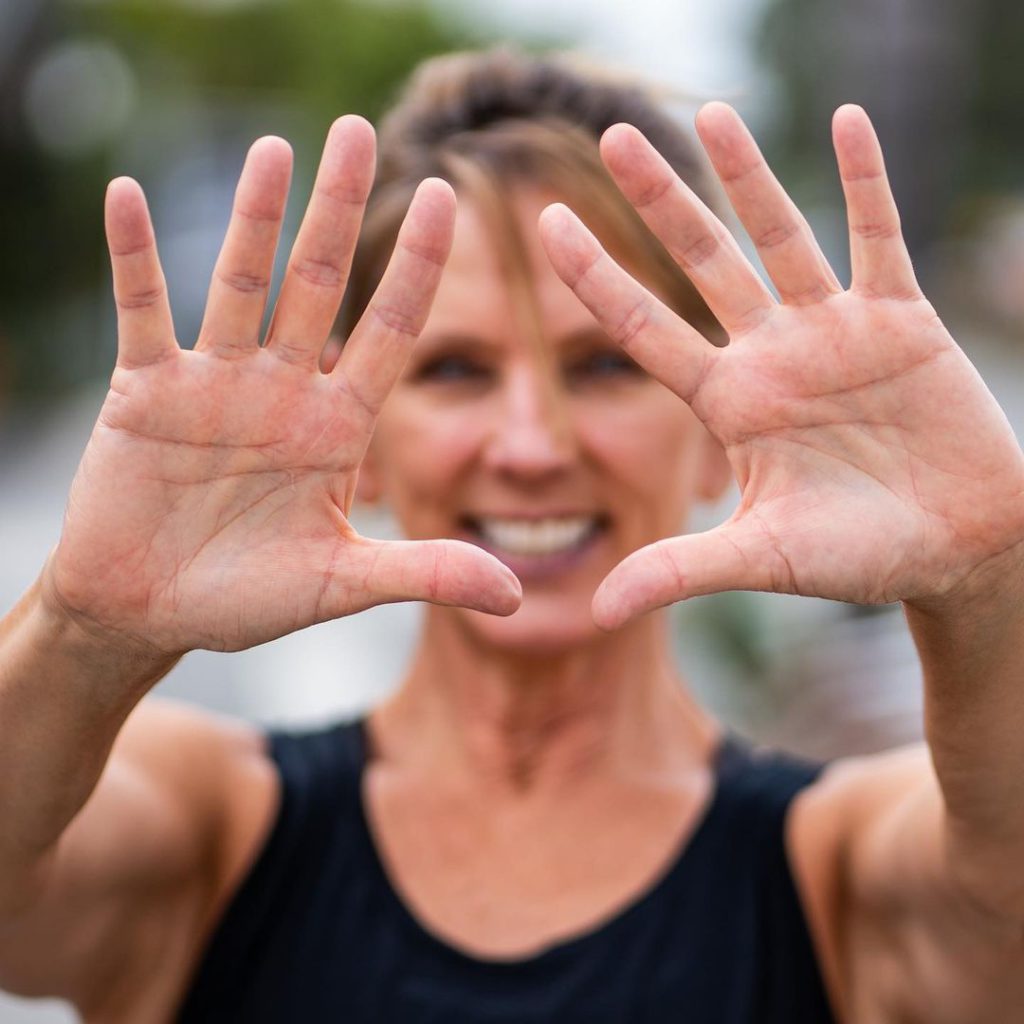
They tell you, “I hear you. That’s hard, but we’re going to get through this one day. We’re going to get through this day and then the next day.” You’re kind of in a 12-step program. It’s good to have somebody who shares a common experience with you, in my opinion.
Advice for single women with cancer
Andrew, TPS: As you had told us, you wondered at the very lowest point, “Would anybody ever love you again?” Now someone does. What advice would you, give to single women in particular, or even single men, where they can have hope that they could find a successful relationship?
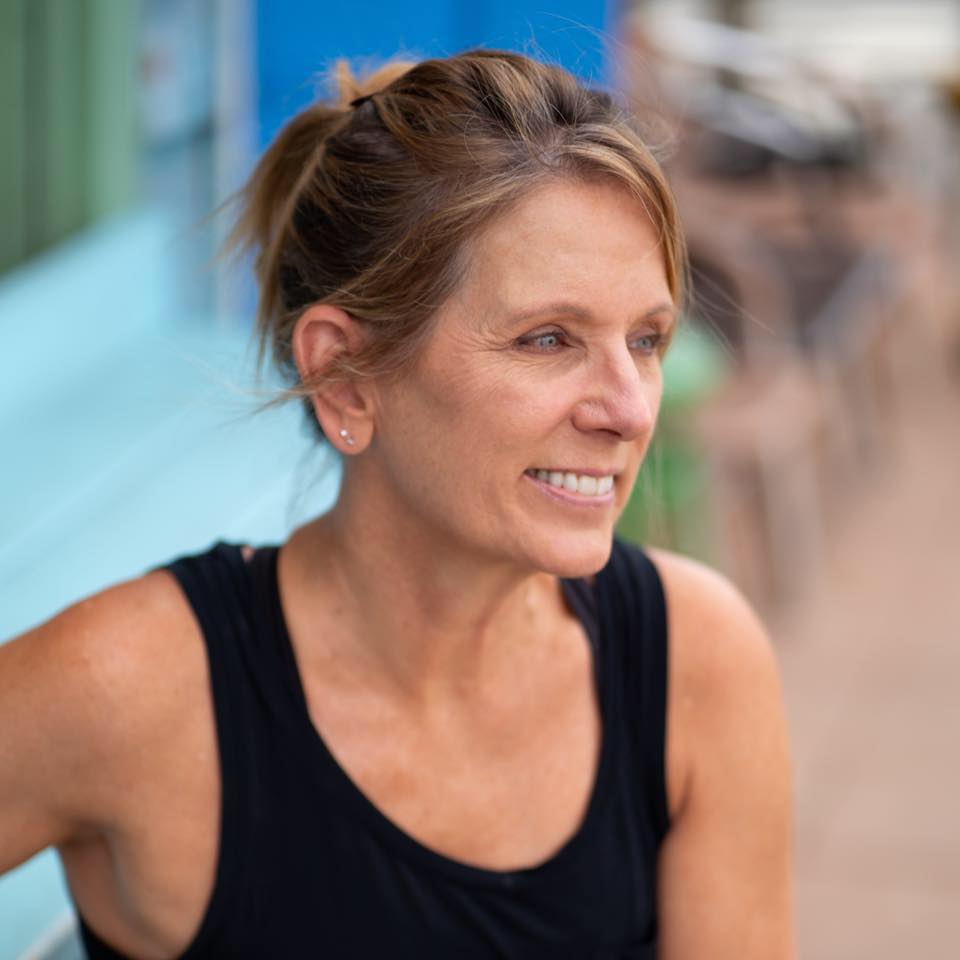
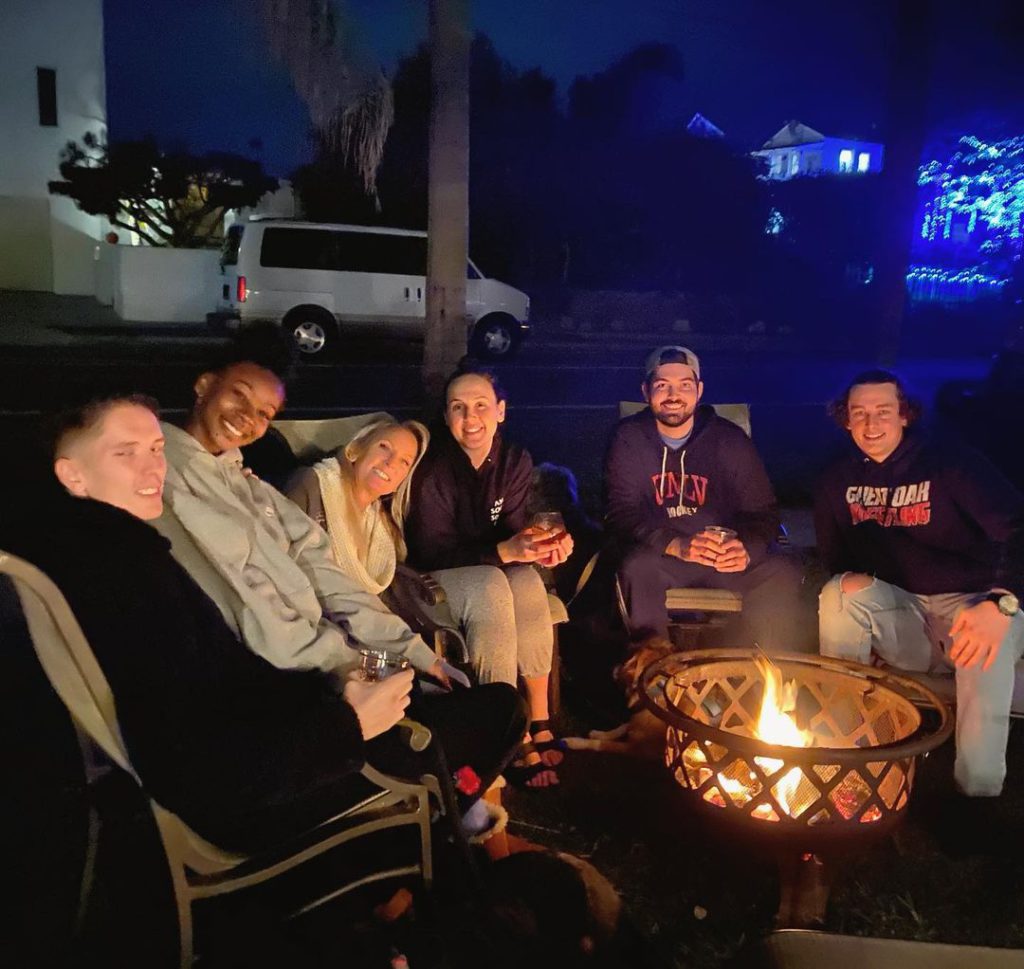
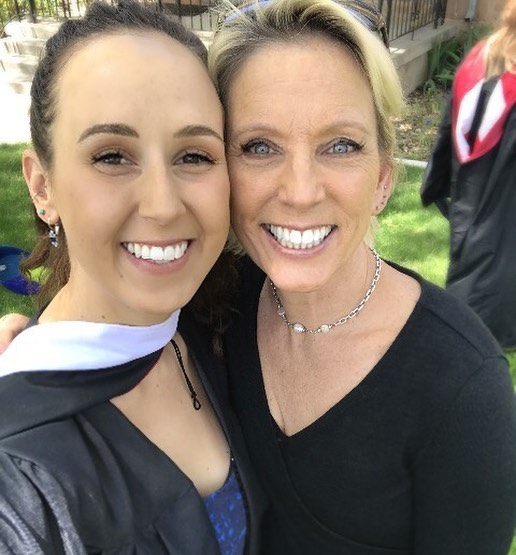
Annette: Having the experiences that I’ve had, it became clarifying to relationships. That man that broke up with me, God bless him. Thank you. That was ultimately a good thing.
Moving forward, I had to filter relationships through different lenses. What is important to me? All of this stuff is just a bag of bones. It wasn’t important. [Realizing this] helped me refocus what I wanted in a relationship. It had a lot less to do with the physical stuff, and it had more to do with somebody’s heart, their character, and their spirit.
A spiritual process is very important to me. I’m more of a Buddhist. [The man that I met] has a different spiritual journey, but he has a spiritual journey. We were able to and continue to connect about that.
Yes, you’re going to be different. Your body is going to change. It is going to be different. You are lovable. You always have been, always will be. I am love. We are all love. You just have to find people you can connect with that.
I was afraid I was going to be unlovable. The universe has unloaded love on me from my family, from my friends, and eventually from this man. I was afraid I would not be lovable. That was just my pain talking. That was not reality.
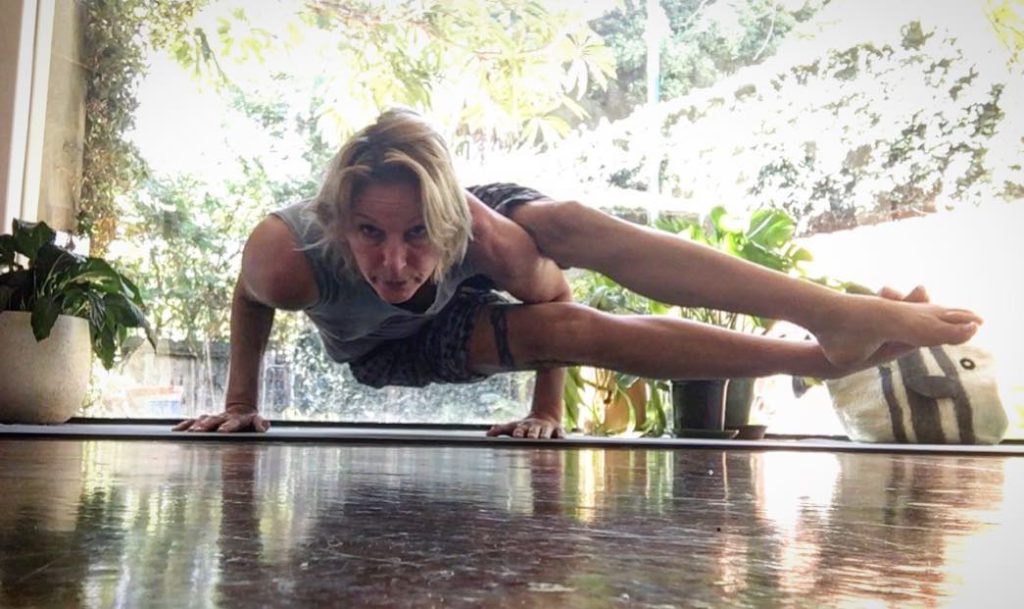
It just takes a while to move through that and to find that love and to feel at peace again. It just takes the time it takes. We all just have to process it in the time and in the way that gets us to the end goal.
Andrew, TPS: Right, but it is there.
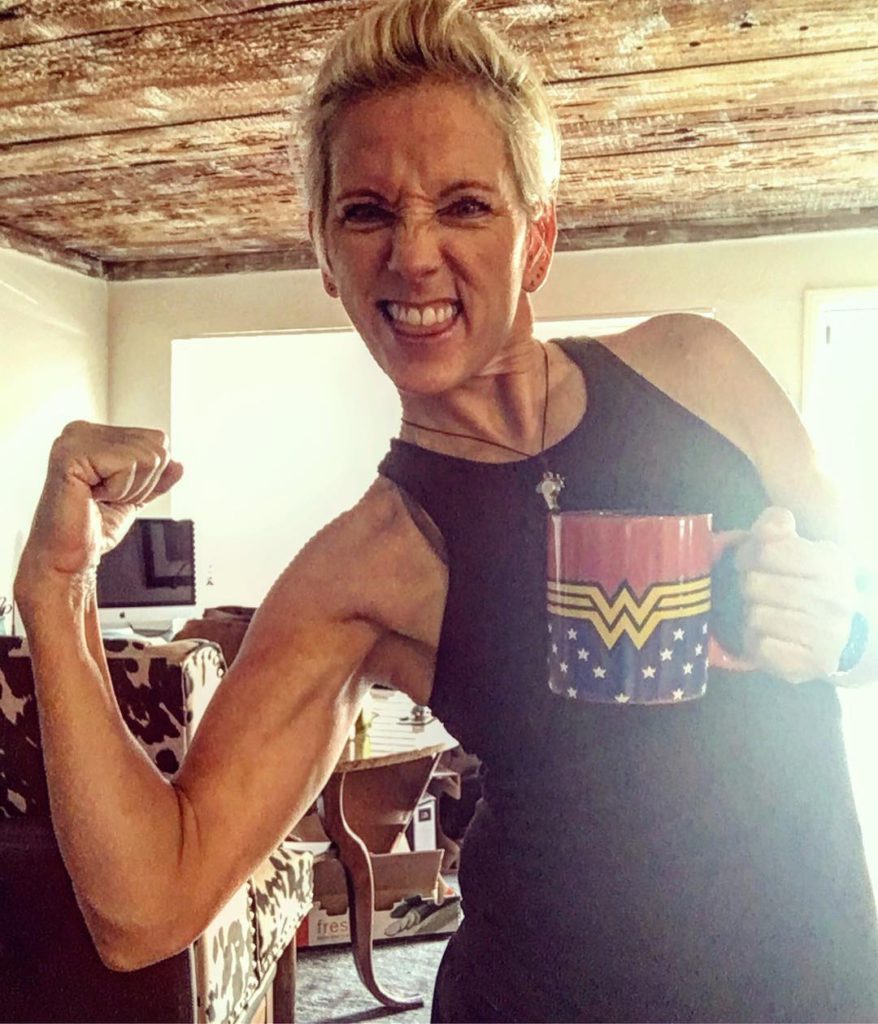
Taking daily medicine
Andrew, TPS: The good news is you are very vibrant. Your kids are doing well. You have a loving relationship. We wish you only good times and love. We’ll all have challenges going forward. You take a medicine to limit your risk of recurrence.
Annette: Yes.
Andrew, TPS: Like many women who’ve been treated for breast cancer have. You always worry, “Is there another shoe that’ll drop?”
Annette: Absolutely. The friend that was my cancer mentor, she stopped talking to me for a while at some stage. Her cancer had come back and metastasized. She is now fighting for her life. She just did not want to share that with me at that stage of my journey.
I did not want to take the aromatase inhibitor for 3 to 5 years or however long it was. I dragged my feet and dragged my feet because it has side effects. I mentioned I had side effects when I did start taking it, and then I stopped it.
I take that pill every day now, and I’m happy about it. I take that pill, and it reaffirms my will to live every day. It reaffirms that I’m a survivor. I got from that place to this place. Every day when I take that pill, I don’t think about the negative parts of it and the side effects. I think that’s me being a fighter still. I want to live. Some of that medication does definitely have side effects and complications, but well worth it.
Andrew, TPS: So well said. I take a daily cancer medicine, too. I do feel it’s my will to live.
Annette: Your life-affirming ritual.
Conclusion
Andrew, TPS: Thank you so much for sharing your story, your journey. It’s great that you’re in a better place.
Annette: Thank you both so much. You are a blessing in my life. Thank you.
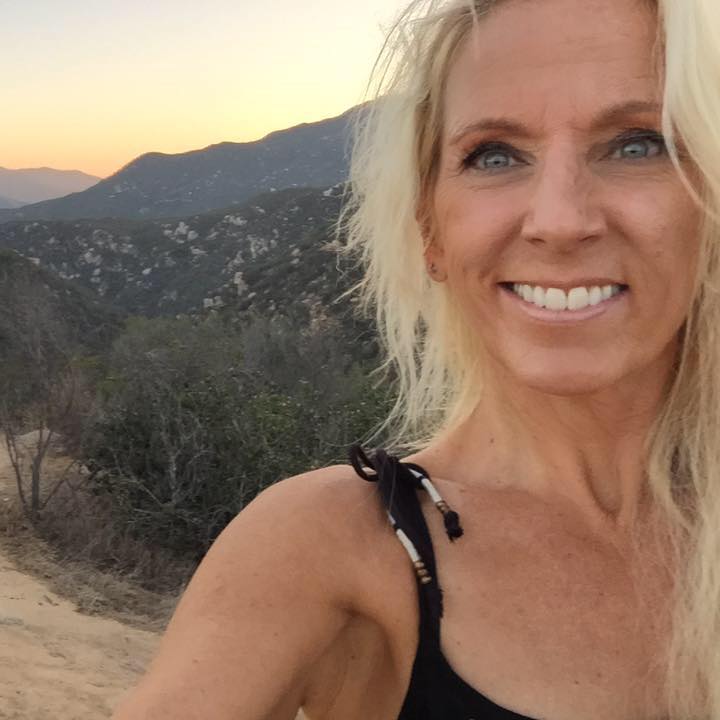
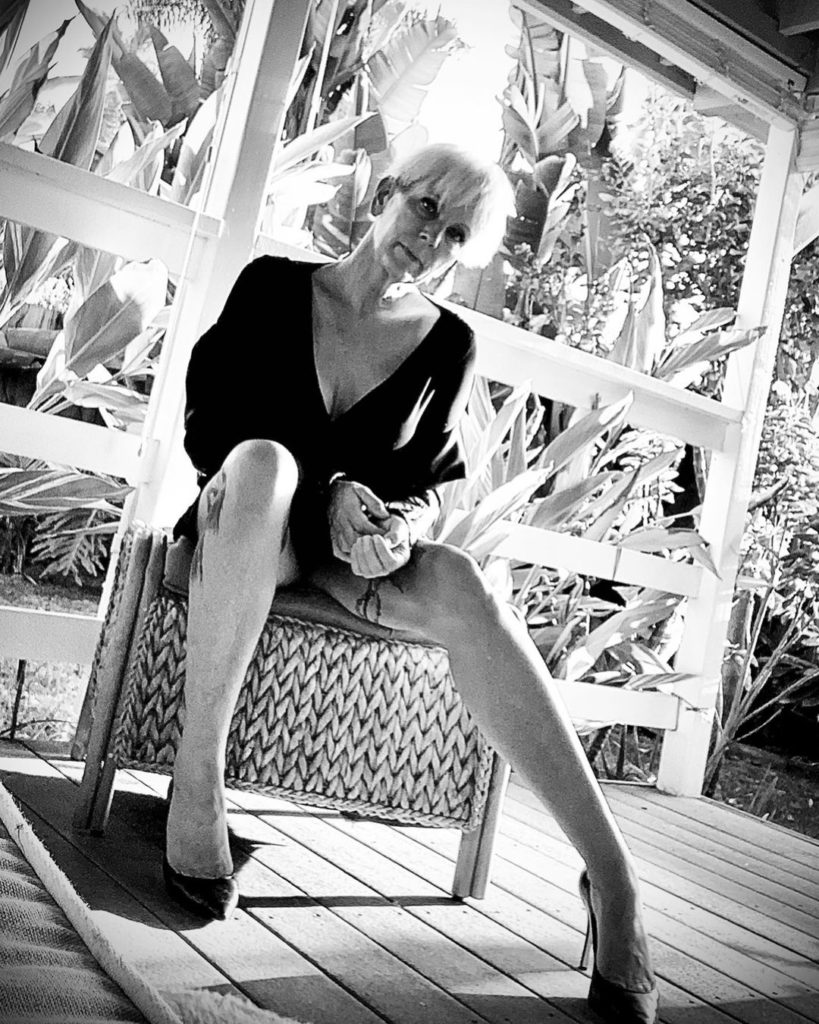
Inspired by Annette's story?
Share your story, too!
